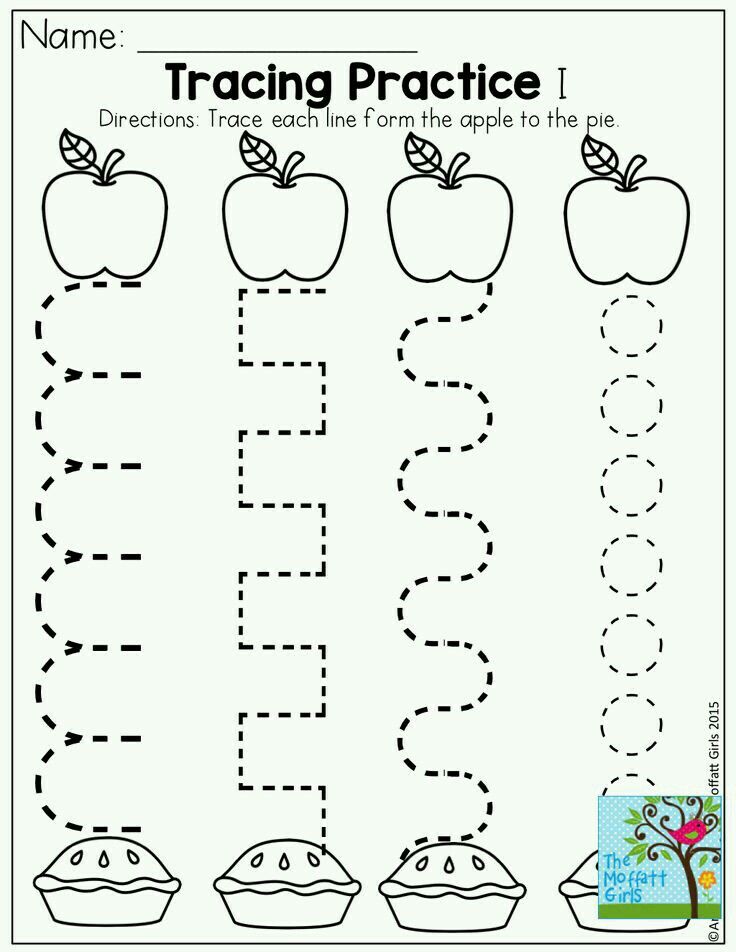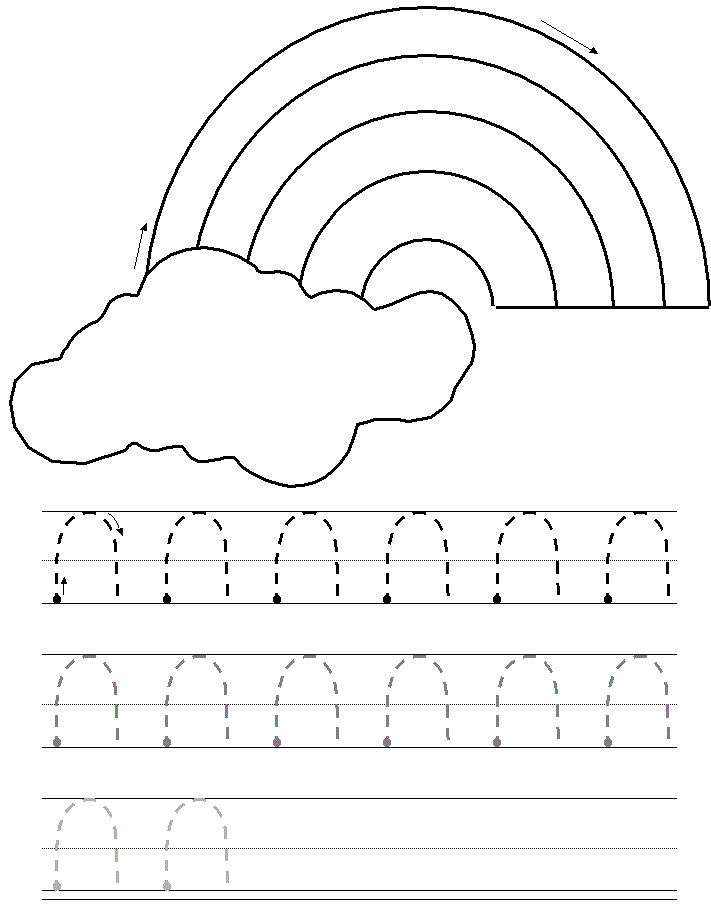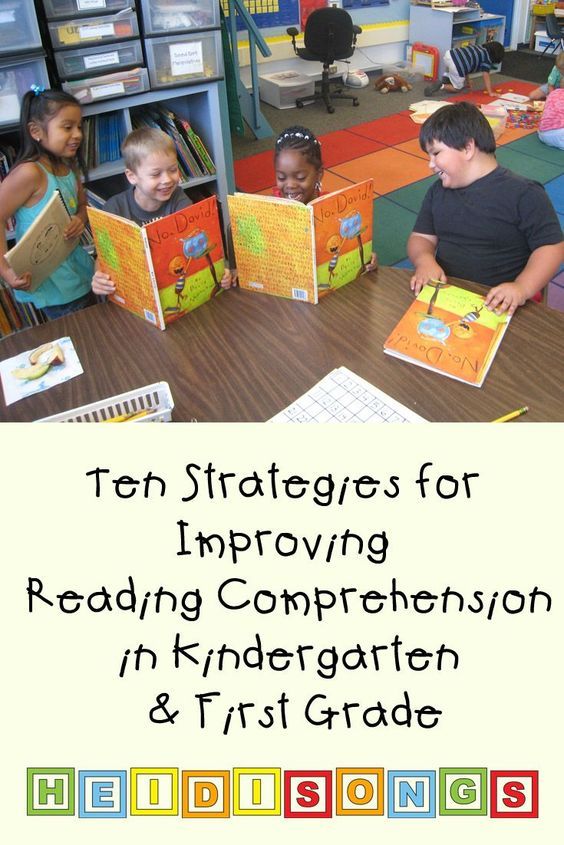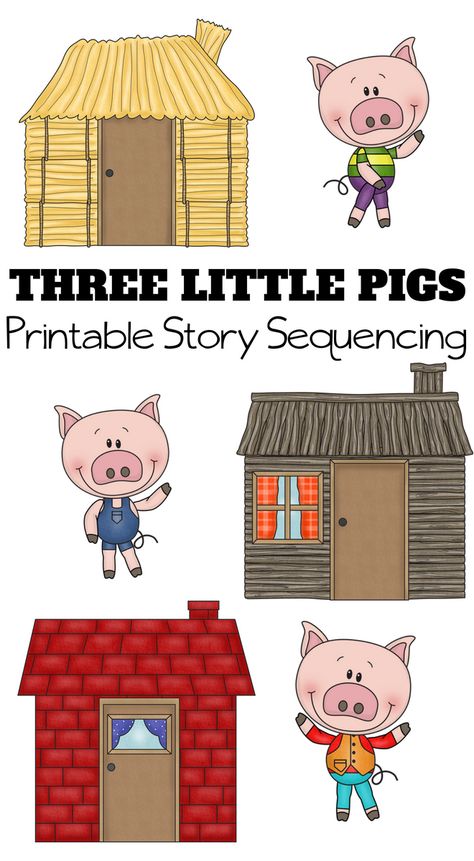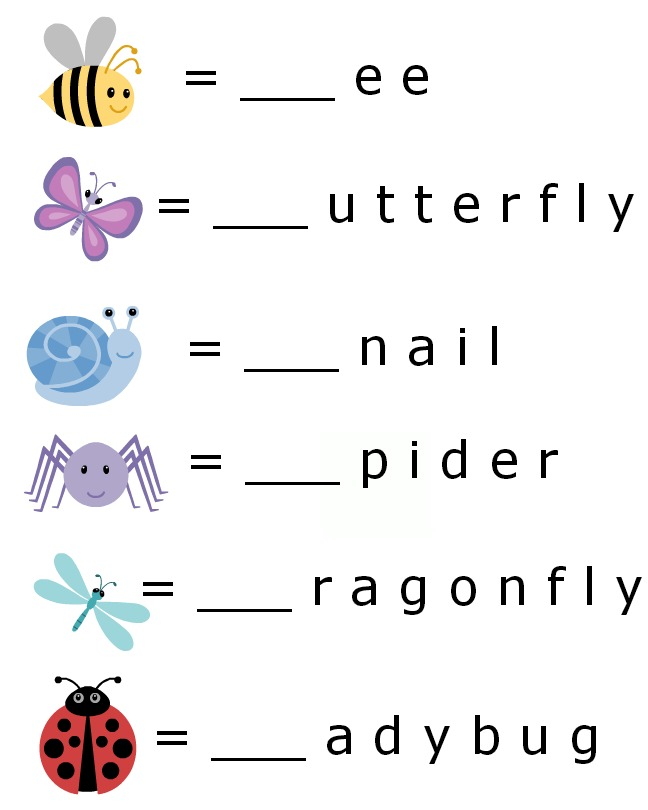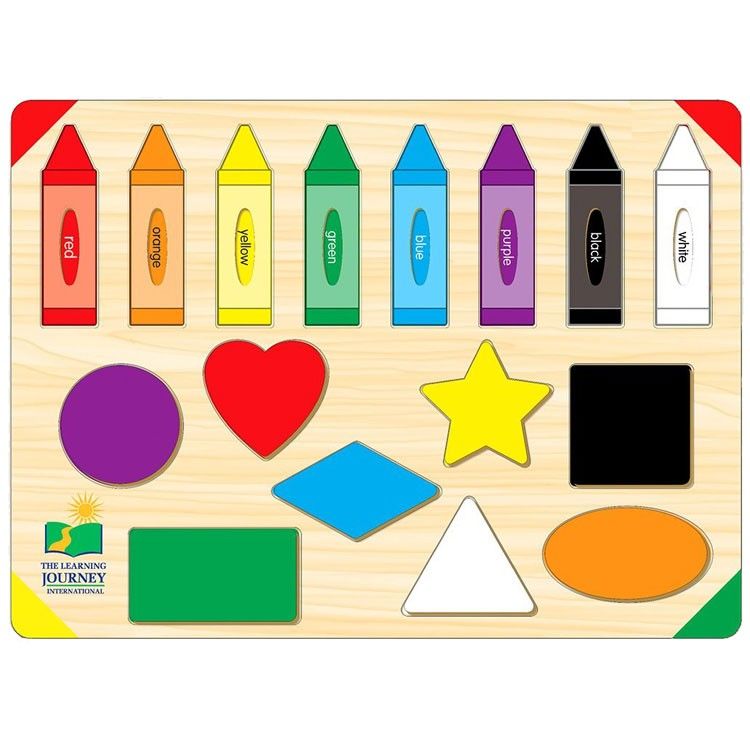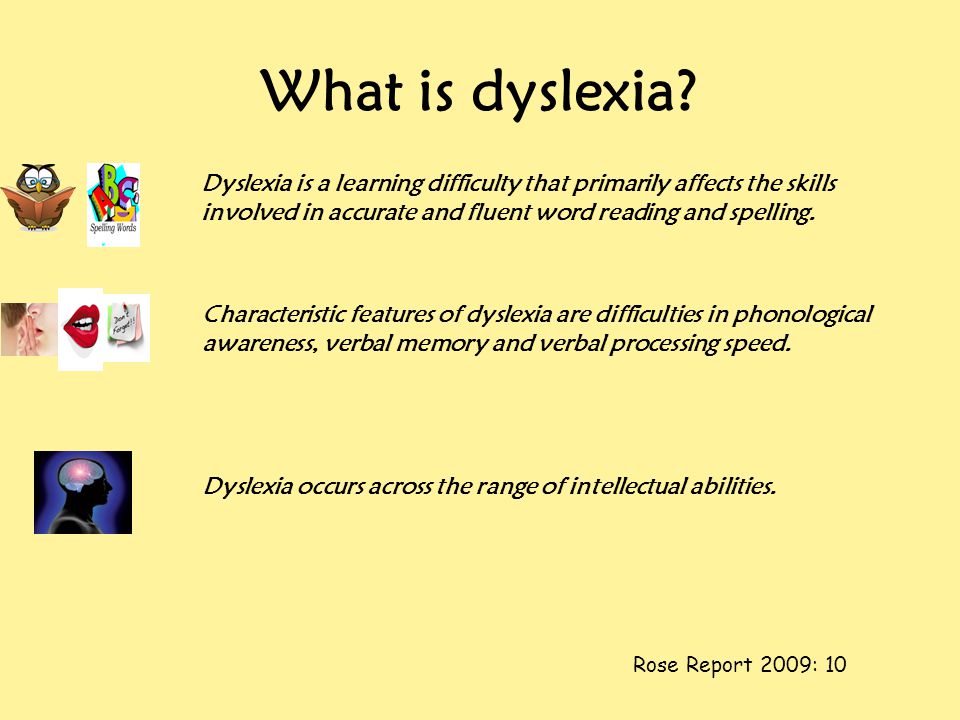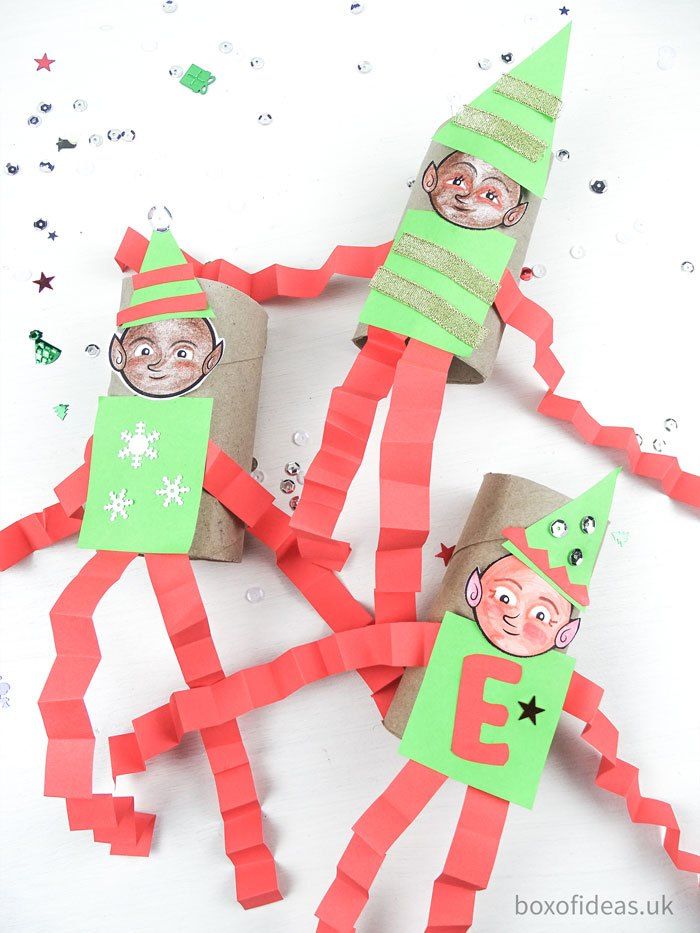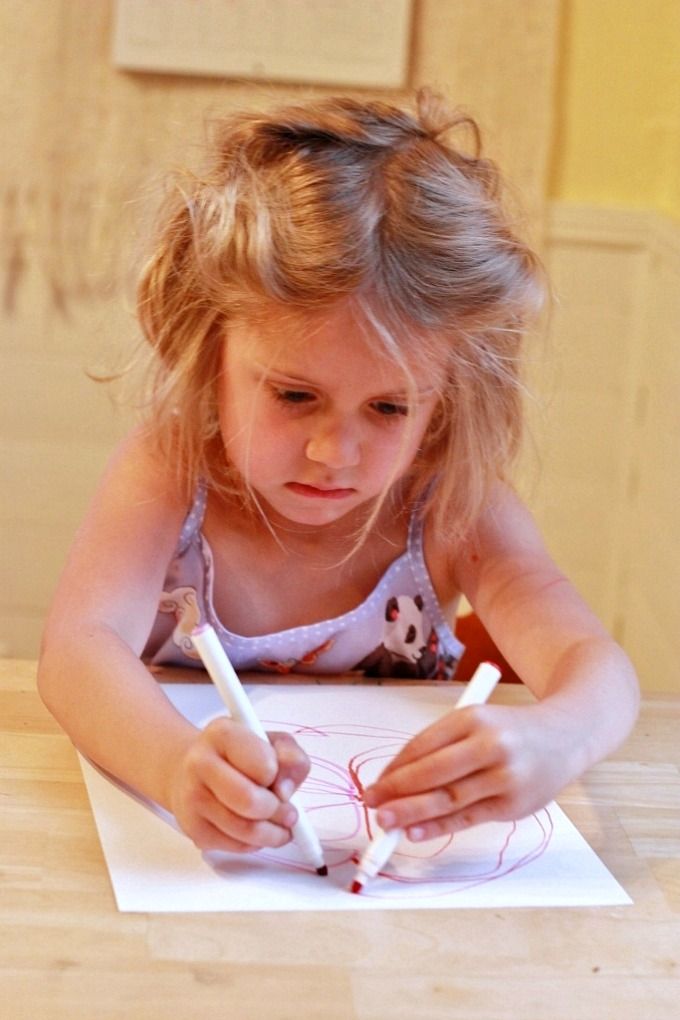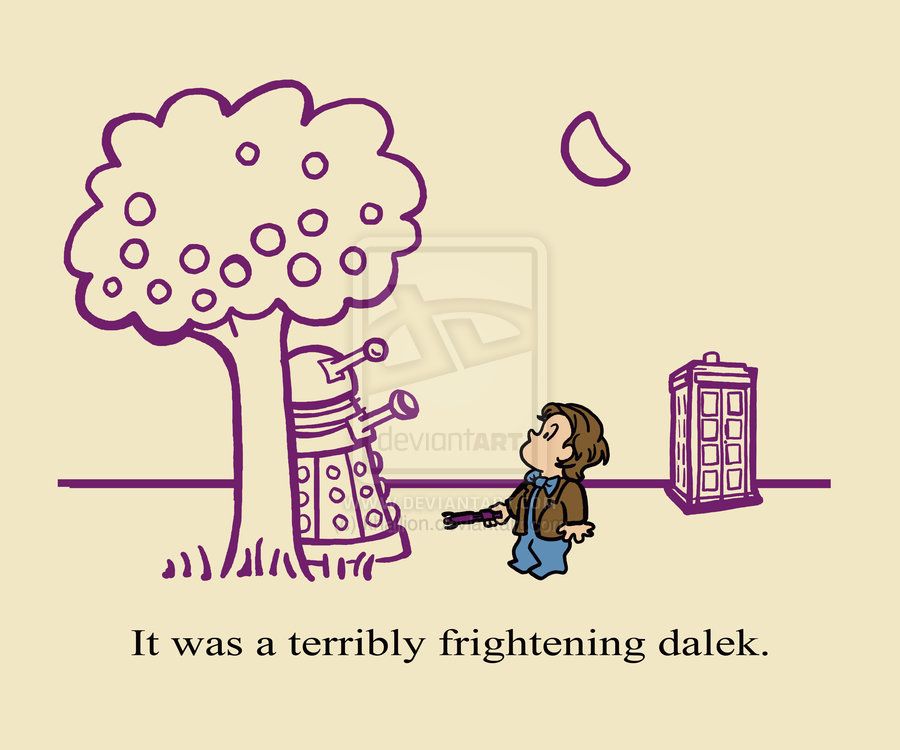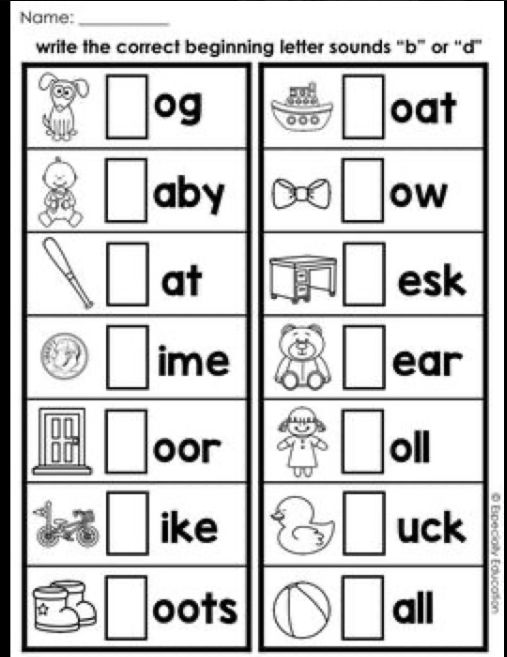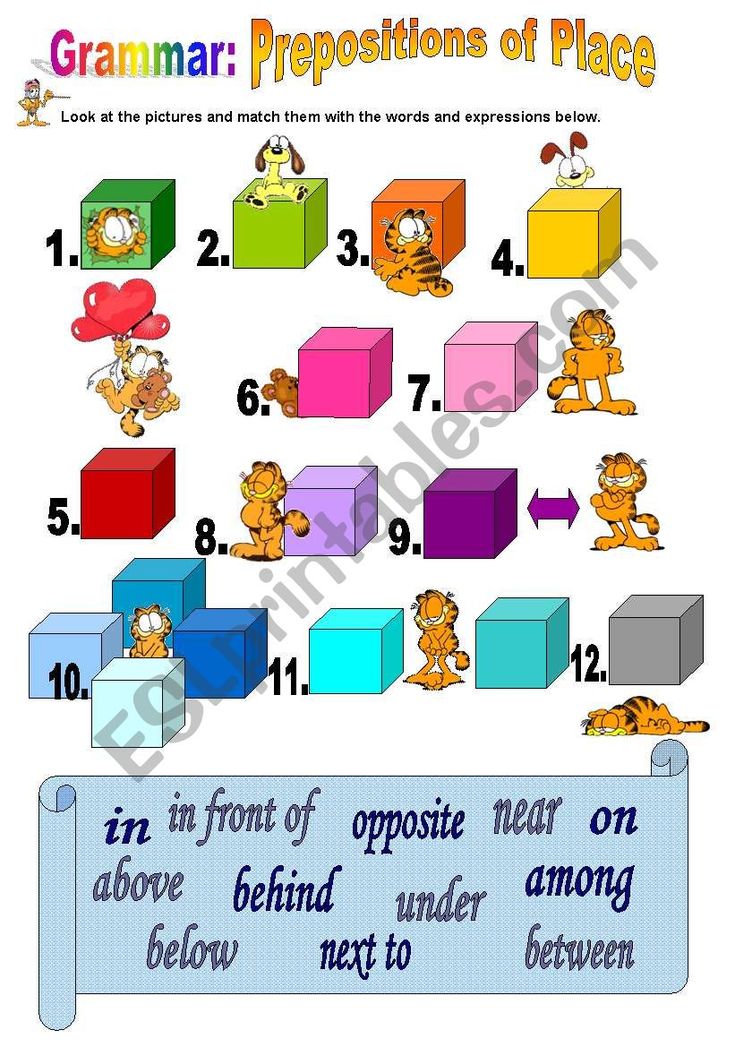Writing activities for pre k
10 Sensory Pre-Writing Activities for Preschoolers
Inside: 10 fun and engaging sensory pre-writing activities for preschoolers.
Often parents try to jump into writing with a pencil with their young child, only to find the child reluctant, or even frustrated by the activity. Alternatively, working through the process of learning about letters through a sensory approach with a child of preschool or kindergarten age, is more likely to result in a fun and engaging learning experience that they child is less likely to find laborious or stressful.
Think back to the days when you were first learning to write…or if, like me, you can’t remember that far back, think of a time when you were learning to do something new. Not only can this process be overwhelming, it can also be kind of stressful – even when it is something we want to learn.
While we want our minds and bodies to do what we want, when we want it, and how we want it to, we all know that it doesn’t always work that way! Not whilst we are in the process of mastering something new.
And if you feel that way as an adult, imagine what what it feels like to be a preschooler or kindergartener trying to understand the process of writing!
These sensory pre-writing activities for preschoolers offer a fun and engaging way to help your child understand the forming of the letters, while giving their fine motor skills and finger muscles a workout, too. By engaging the senses through the selection of sensory activities, you can help your child to build connections in the brain that reinforce the relationship between the shapes of the letters they are forming and the names and sounds of the letters being created.
Which will most definitely help them once they are ready to indeed pick up that pencil to write – they already have a wonderfully familiar relationship with letters and their shapes.
Before you get started: Add a set of our Printable Alphabet Cards to your resource collection for use with the following activities.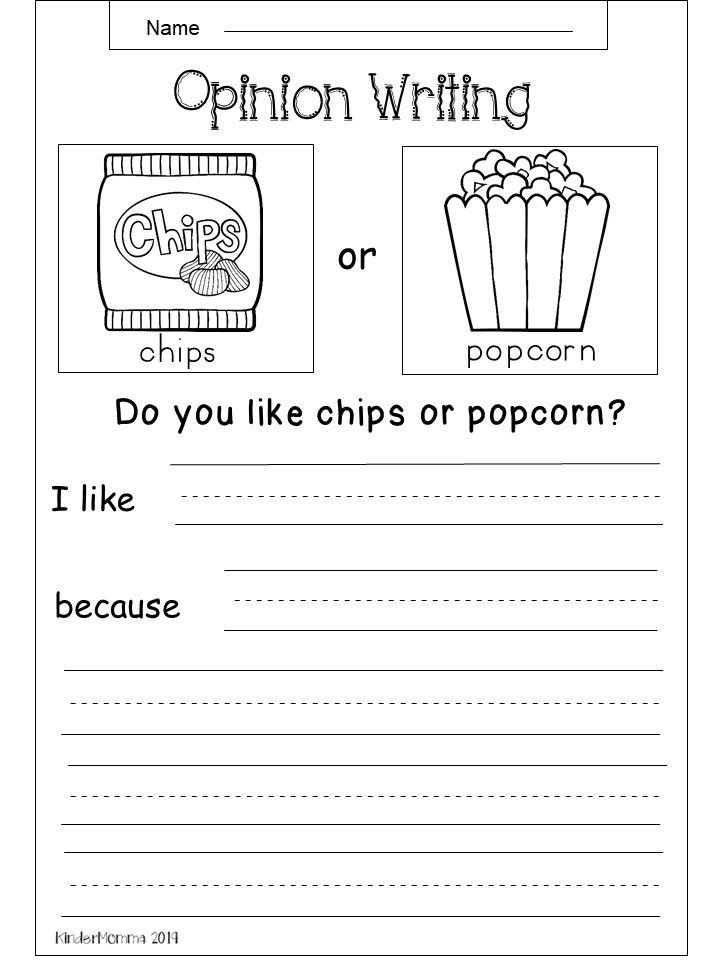
1. Salt Tray Drawing
Salt trays are a fun way to have your child practice forming letters with their finger or a small paintbrush. The feel of the salt can be calm and relaxing for your child as they run their fingers through the salt to create letters. Add a few drops of food colouring and/or essential oil to the salt for an even more engaging learning experience.
2. Playdough Shapes
Using playdough to shape and mould letters is a great way to focus on the shapes that make up each letter. You can use playdough to roll, squish, and shape for hours of sensory fun. Try any of these three techniques;
- rolling playdough snakes and using the snakes to form letters
- press letter stamps into flattened slabs of dough
- roll out sheets of playdough and use alphabet cookie cutters to cut out letters.
RELATED: 10 ways to learn with letter stamps.
3. Cinnamon and Sugar Writing
Who doesn’t love the smell of cinnamon and sugar? And it’s good for learning as well as a topping for toast! Stimulate your child’s senses of smell and touch by creating this simple sugar writing activity.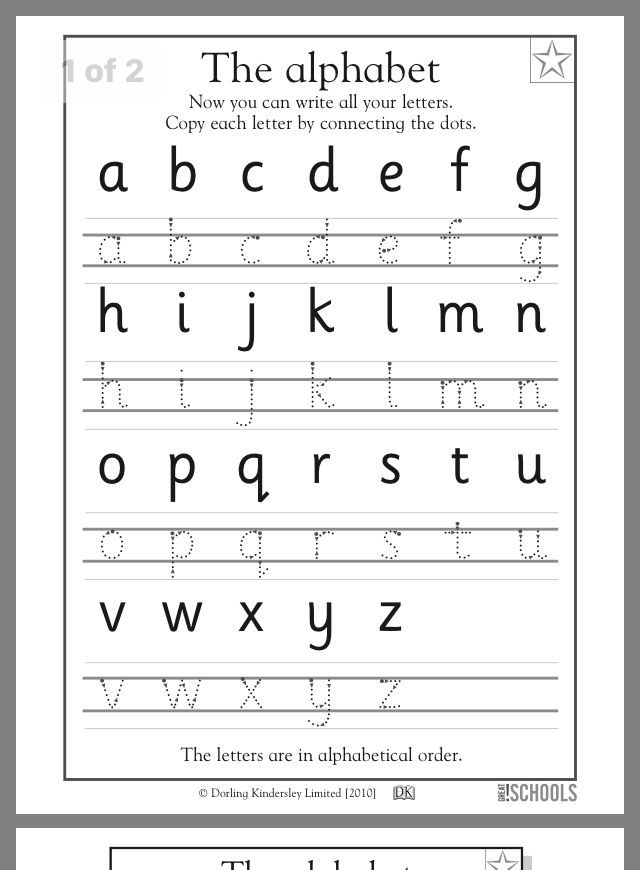 Combine white sugar with a little cinnamon and invite your child to use their fingertip to create letter shapes.
Combine white sugar with a little cinnamon and invite your child to use their fingertip to create letter shapes.
4. Pushing Beads Into Playdough
Your child will love being able to use playdough and beads to create letters. Simply push the playdough into a flat lid, flatten it out and trace out the letter for your preschooler. They can then work their fine motor skills of picking up the small beads to outline the letter.
5. Shaving Cream Writing
Get ready for this to be a little messy! Your child will love the fact that they’re actually being asked to get their hands messy with shaving cream. This is one sensory activity that they’ll more than likely spend hours upon hours doing…and you can keep it clean by spreading the shaving cream onto your shower screen. Alternatively, use a shaving brush and paint the letters with shaving cream onto your bathroom mirror or shower screen.
6. Blackboard Paint With Water
Using water to learn to make letters is totally possible.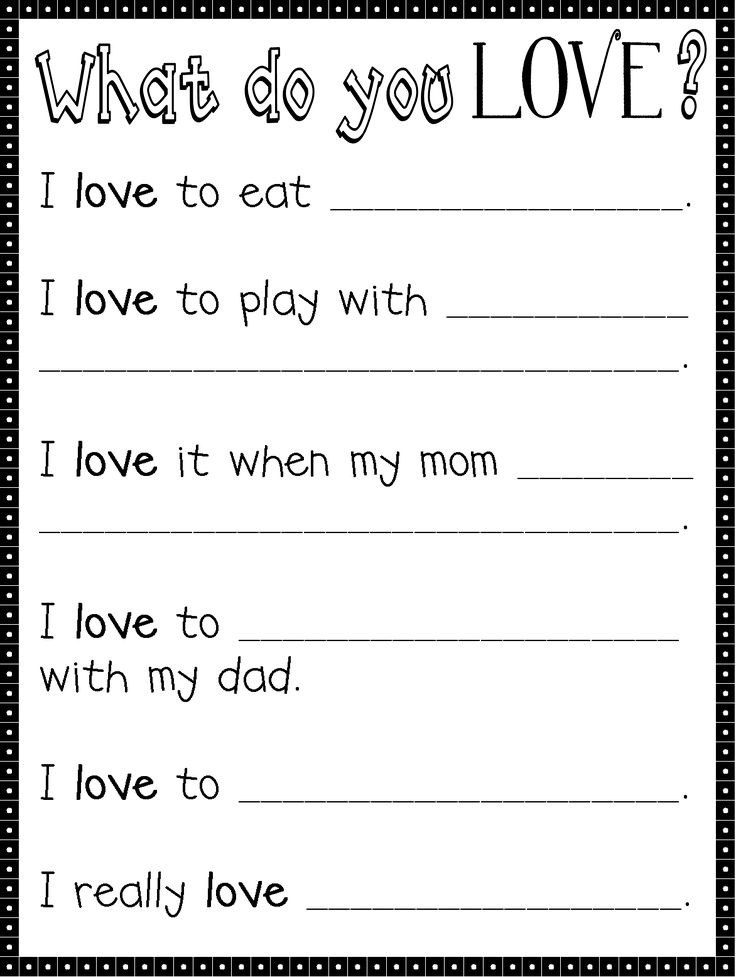 All you will need is a blackboard, water, and their fingers to do so (although they can use a small paintbrush if preferred.)
All you will need is a blackboard, water, and their fingers to do so (although they can use a small paintbrush if preferred.)
7. Squishy Bags
Squishy bags are a lot of fun for learning about letters. Add a few big globs of kids acrylic paint to a ziplock bag. Tape the bag shut to stop messes. Lay the bag on a table top and encourage your child to use their finger to press onto the bag, moving the paint aside to form shapes and letters. They’ll love that squishy feel and it’s a great workout for the fingers too.
8. Sandpaper Letters
Make a set of sandpaper letters. Cut letter shapes from sandpaper and attach each to a square of cardboard. Your child can spend time tracing the letter with their finger, feeling the texture. Alternatively, work on letters by placing a paper over a sandpaper letter card and tracing over the bumpy letters with crayons.
Add the letter cards to your other sensory letter activities for a double dose of sensory letter fun.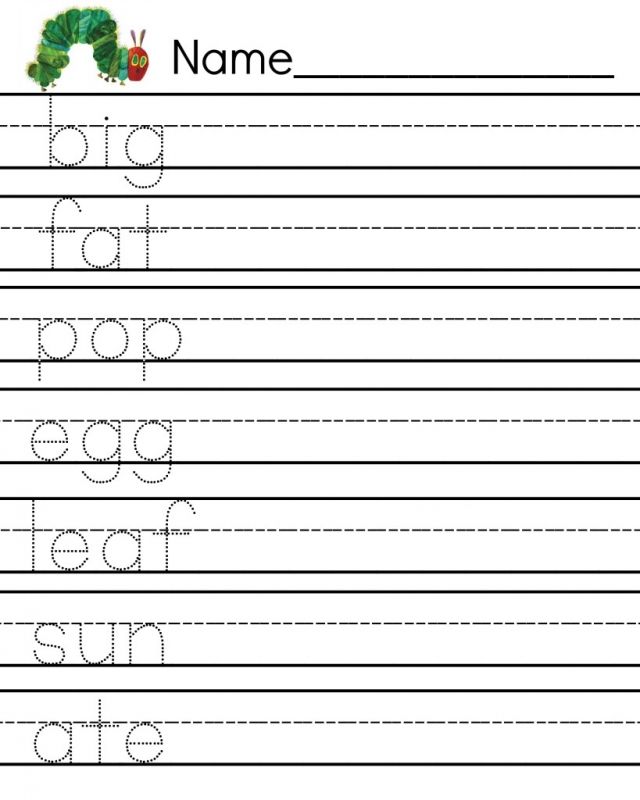
9. Ice Painting
What preschooler doesn’t love painting? And when that painting can be created with a homemade recipe to do together, it’s certain to be a win. Once your ice painting sticks have set, why not take them outside and let your preschooler paint their letters on the sidewalk!
10. Chalk Rainbow Writing
Head outdoors and use a piece of white chalk to write on the pavement, lightly form the letter (or set of letters) you want your child to trace. Have them trace around each letter repeatedly with different coloured chalk to create a rainbow letter.
These simple ways to combine learning letters and sensory fun are simple and easy to do. Get creative with how you approach topics with your preschooler and you’ll be amazed at how willing they are to try out fun new ideas and activities!
RELATED: Want more information about how to get started with learning about letters with preschoolers or kindergartners? Be sure to check out our wonderful activity/resource pack – Alphabet Fun: Hands-On Letter Learning Activities for 3-6 Year Olds.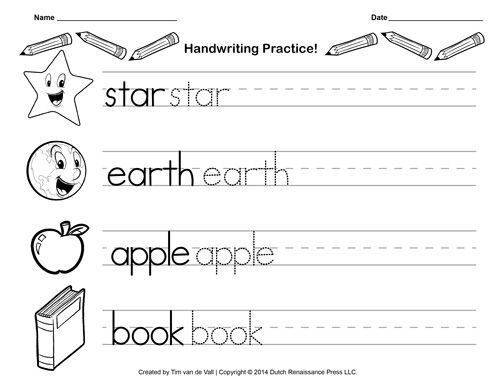
Christie Burnett is a teacher, presenter, writer and the mother of two. She created Childhood 101 as a place for teachers and parents to access engaging, high quality learning ideas.
Pre-Writing Activities for Preschoolers - WeAreTeachers
Pre-writing activities for preschoolers not only help our youngest learners learn the shape and structure of the letters in the alphabet, but they also serve a number of other functions as well. According to education blogger Lisette, from Where Imagination Grows, pre-writing practice teaches directionality in writing, encourages fine muscle development and coordination, and also helps students process sensory information critical to the writing process.
Here are 22 super fun, easy-to-make activities that your preschoolers will love!
1. Squishy Bags
Source: Learning4kids
All you need to make these awesome sensory bags is resealable zipper storage bags, flour, water, and food coloring.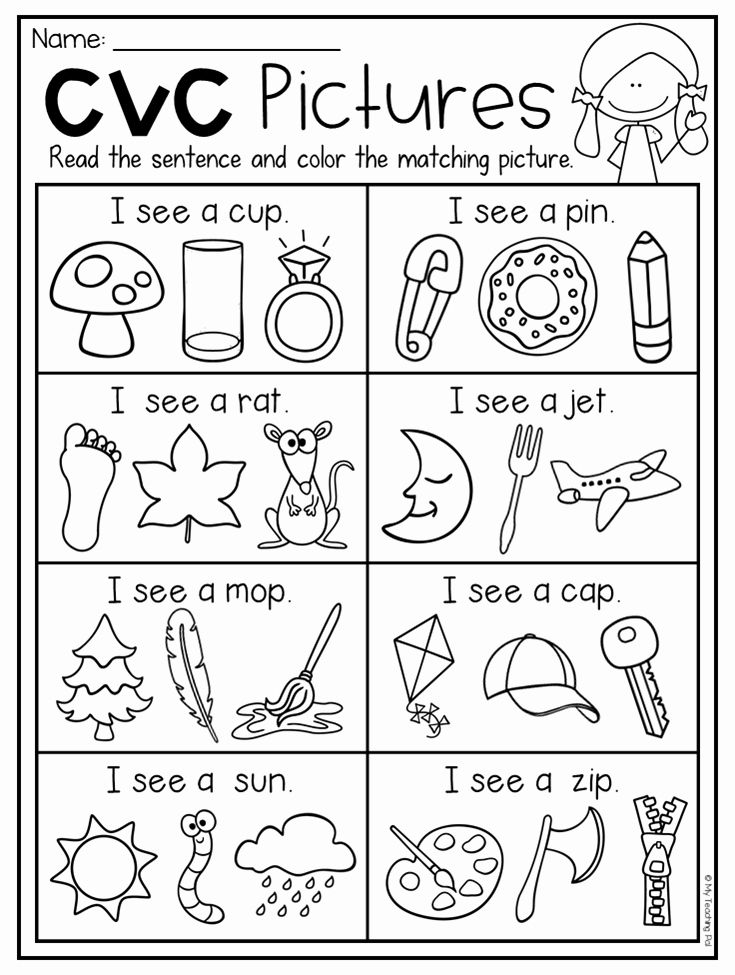 Kids can use cotton swabs or their fingers to draw shapes, lines, and letters on the bag.
Kids can use cotton swabs or their fingers to draw shapes, lines, and letters on the bag.
2. Bubble Wrap
Source: Coffee Cups and Crayons
What a great way to recycle all that leftover bubble wrap! Simply write letters on sheets of bubble wrap with a Sharpie and let kids pop their way to letter recognition.
3. Play-Doh Snakes
Source: In My World
Kids can’t resist the sensory lure of Play-Doh! For this activity, kids can roll small balls of dough into long snakes and form letters by bending and joining the snakes together.
4. Play-Doh and Drinking Straws
Source: KidActivitiesBlog
Flatten out a medium-size piece of Play-Doh on a flat surface. Then use a sharp object to draw a letter on the flattened area. (Make sure that the letter is large enough to be easily recognizable when filled with straws.) Cut plastic straws into one-inch segments. Let kids “trace” the letters with the colorful straw segments.
5.
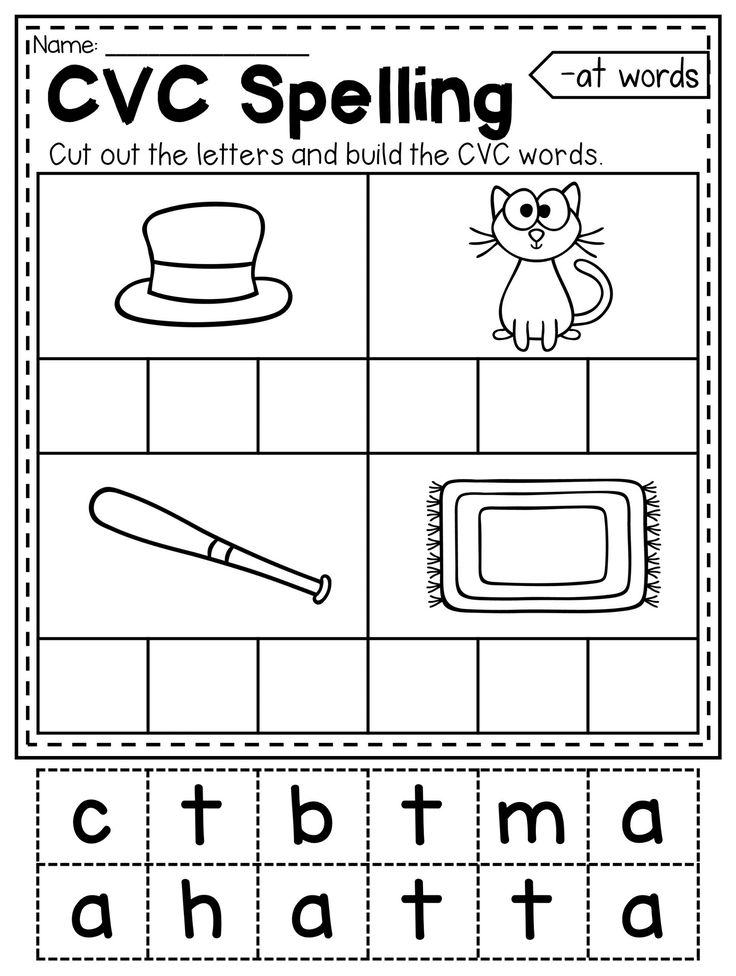 Dot Markers
Dot MarkersSource: 3 Dinosaurs
Students use dot markers to practice the mechanics of writing and get used to the angles and curves of letters. Click on the link above to download 12 free pages of pre-writing dot marker worksheets.
6. Cotton Swabs and Paint
Source: Lessons Learnt Journal
This is a fun activity to help kids work on their fine motor skills and get the hang of the all-important pencil grip.
7. LEGO Blocks
Source: Wildflower Ramblings
Blocks! Young kids can’t get enough of building and creating with them. Put their creative energy to good work with these free printable letter cards.
8. Shaving Cream
Source: Mess for Less
This classic activity is a great starting place for pre-writers. All you need is a tray and a can of shaving cream.
9. Glitter Glue
Source: Growing Hands-On Kids
Pre-writing lines are important building blocks for any preschooler to master before learning letter formations.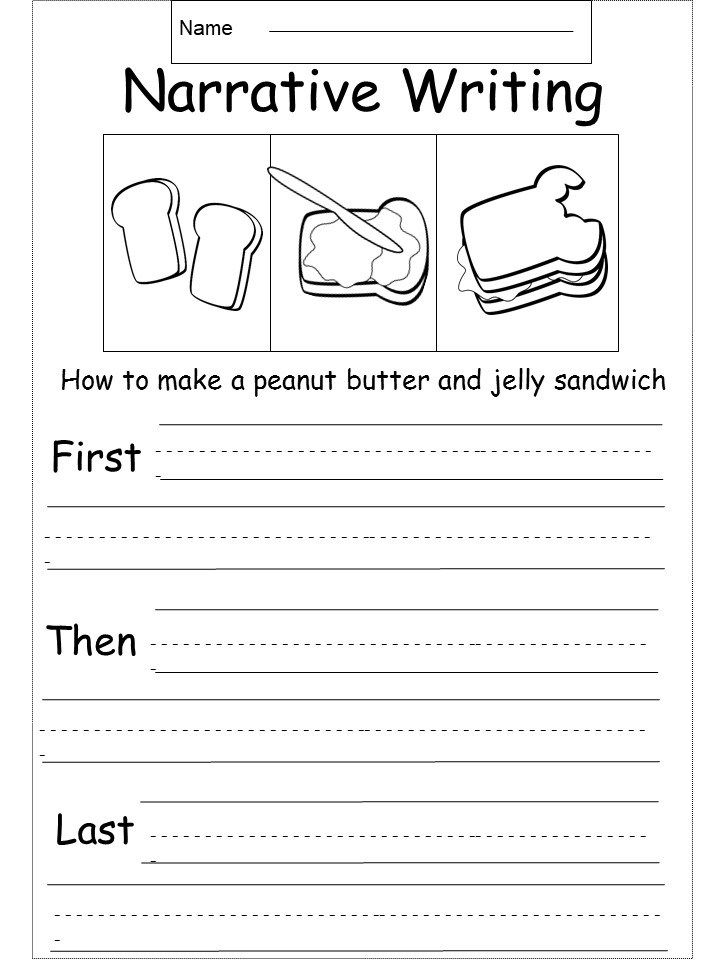 Download this glitter glue pre-writing line practice for preschoolers activity.
Download this glitter glue pre-writing line practice for preschoolers activity.
10. Beads
Source: Artsy Momma
Just like the one above, this activity builds fine motor skills that your young students need to begin writing. Instead of using glitter glue, though, students use inexpensive pony beads (found at any craft store) to follow the lines.
11. Sand Tray
Source: Our Little House in the Country
One of the simplest activities to put together for your students to practice pre-writing is a sand tray. Kids can use their fingers or an unsharpened pencil to practice writing. As an alternative to sand, you can fill your tray with salt, flour, cornmeal, or rice.
12. Squeeze Bottle
Source:: Playdough to Plato
Fill a plastic squeeze bottle with salt or sugar and let students trace letters on cards.
13. Rainbow Tray
Source: Where Imagination Grows
This resource is so simple to make, and kids love it! Simply tape colored tissue paper in a rainbow pattern to the bottom of a clear plastic tray.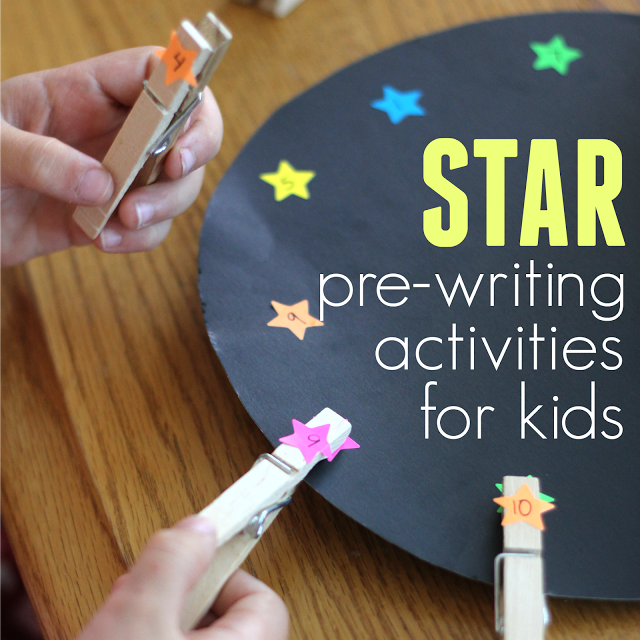 Fill it with sand, and as the kids trace lines and letters, the colors below are revealed. The image above shows the tray on top of a light table, which adds another dimension of fun to the activity!
Fill it with sand, and as the kids trace lines and letters, the colors below are revealed. The image above shows the tray on top of a light table, which adds another dimension of fun to the activity!
14. Masking Tape
Source: And Next Comes L
A roll of colored masking tape and a clear surface make this a fun center activity at writing time.
15. Magnet Board
Source: Days with Gray
Tape letters onto a magnet board and let your little ones trace them with magnets. In the example above, the teacher made the letters into roads, and the students drove their car magnets along them.
16. Lacing Cards
Source: Teaching Mama
Grasping a string between tiny fingers and threading the end through the holes in a lacing card is great fine motor practice for preschoolers. It also begins to build muscle memory for holding a pencil properly.
17. Buttons
Source: Learning4Kids
Preschoolers will have so much fun creating patterns, swirls, squiggles, and zig-zags with colorful buttons.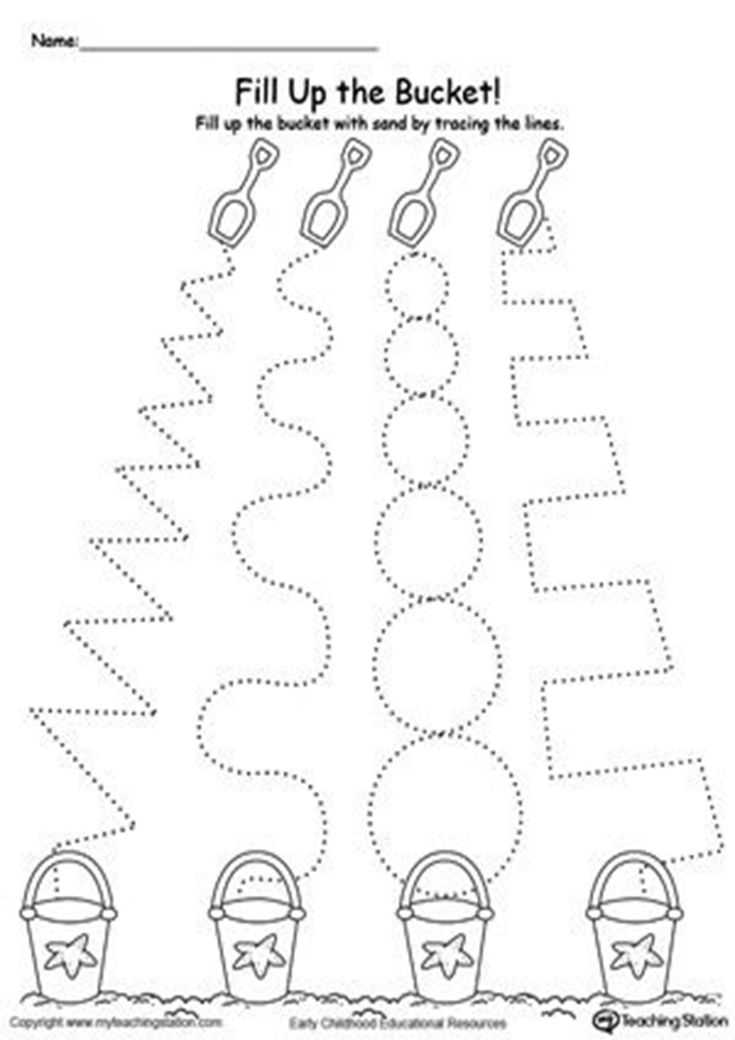 And they’ll be building skills while they’re at it!
And they’ll be building skills while they’re at it!
18. Sticker Line Up
Source: Busy Toddler
Preschoolers need to use a pinching motion, which builds fine motor skills, to peel sticker dots off the page. Then, they use hand-eye coordination to place each sticker on the drawn line. This activity would be perfect for a writing or free time station.
19. Fingerprint Writing
Source: Happy Toddler Playtime
Some kids may not like to get their fingers this messy, but others will adore it! For this activity, you will need poster paper and a palette of washable ink. Draw letters, shapes, and lines on a clean piece of paper. Then, show kids how to dip their pointer finger onto the ink pad, then follow the lines dot by dot.
20. Clothespin Clipping
Source: Teaching Mama
Using a clothespin takes a lot of grip strength. This image shows a student using a clothespin to choose the correct answer to a number problem, but any activity that involves clipping will help them build the fine motor skills required for writing.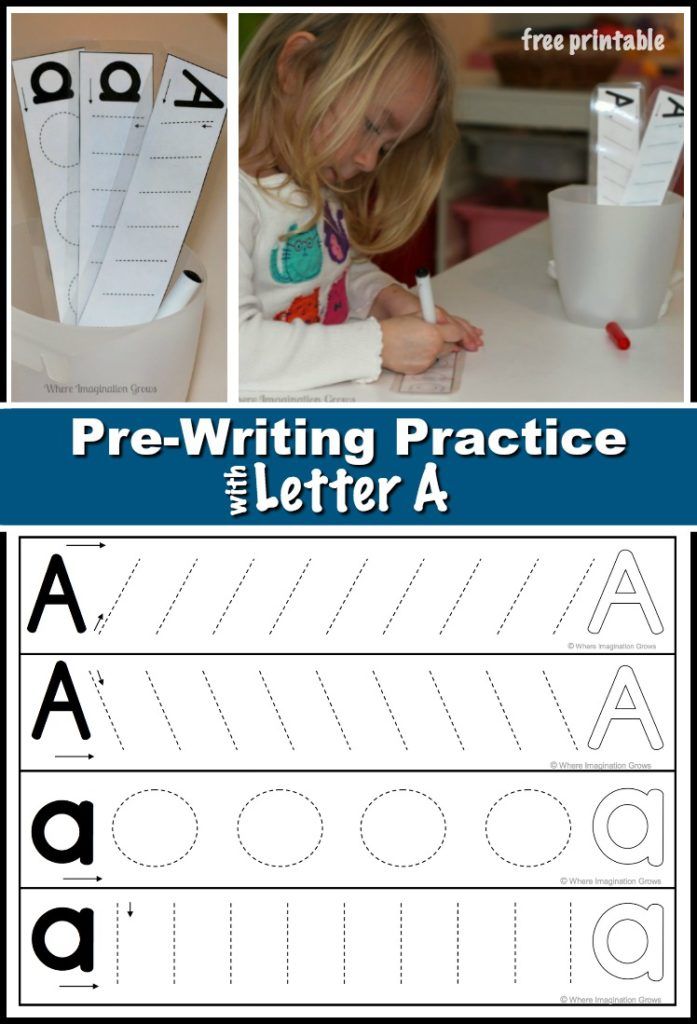
21. Cutting
Source: Play of the Wild
Cutting and snipping activities with scissors are excellent ways for children to practice fine motor skills and control. Give your students lots of opportunities to practice their cutting skills with paper, string, card stock, even Play-Doh!
22. Scrunching Paper
Source: Gympanzees
Scrunching paper into a ball is great for building hand strength. Let your students use computer paper, newspaper, tissue paper, or wrapping paper. Then play a game of paper ball tag!
What are your favorite pre-writing activities for preschoolers? Share in the comments below.
Plus, check out these amazing Sensory Table Activities.
How to spell "homework" in English
Many faces of homework
In English, housework (cleaning, washing, cooking, etc.) is denoted by the word chores or the phrase house work. The word chores, among other things, denotes the ordinary, routine chores of any localization.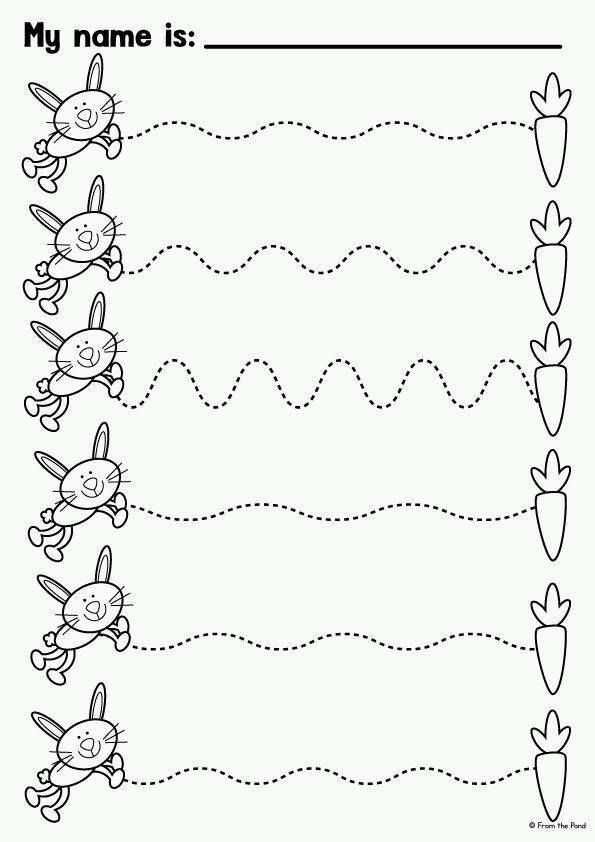 Therefore, speaking in English about homework, one should clearly distinguish between the topics discussed. After all, homework is both washing floors and combing a cat, but at the same time, solving problems in a notebook.
Therefore, speaking in English about homework, one should clearly distinguish between the topics discussed. After all, homework is both washing floors and combing a cat, but at the same time, solving problems in a notebook.
By the way, housework (the one that is usually denoted by the phrase house work) performed by hired workers - servants, cleaning specialists, visiting cleaners - is called domestic work in England, which is also translated as "housework" ...
Doing academic homework, as well as studying educational literature, writing exercises and similar work in the English tradition is called Homework.
There are frequent attempts to write the word homework broken down into parts, that is, home work. This is a mistake, because home work can be used in the sense of "home work", but not in the sense of "doing homework".
Professional activity performed within the walls of a dwelling is real home work. An element of the educational process aimed at consolidating knowledge gained in the classroom or online is homework.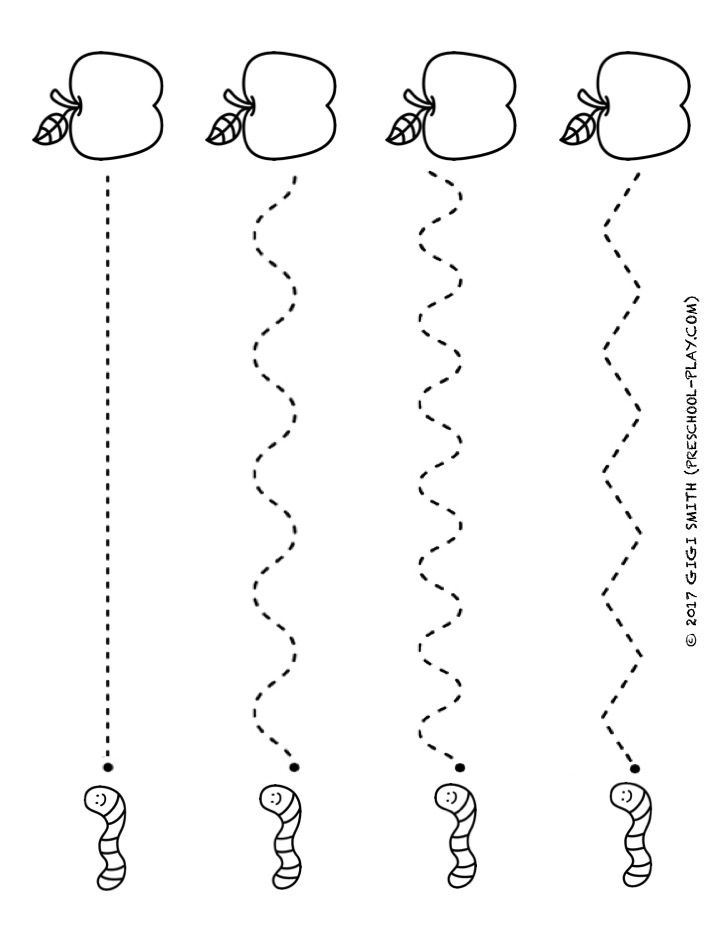
A bit of grammar
When asking a friend about homework, it is correct to ask the question like this: “How is the expression “homework” written in English?” Unless, of course, the questioner is interested in the spelling of a phrase, and not in the process of completing the task...
Speaking of English, they usually mean a subject, that is, an English course - provided that we are not talking about traditions. “According to the English custom, we drink tea five times a day” - sounds true to form and substance (sounds true to form and substance)!
When the questioner is interested in the spelling of the word homework, the expression "in English" should be used, always with a hyphen.
English Homework
Students are tormented by the question of how to write “English homework”. We put the correct spelling in the title: English Homework. Brevity and semantic capacity is one of the most important advantages of English speech.
The expression English Homework can refer not only to the subject being studied (English language itself), but also to the method of writing a written work. British students do as the centuries-old traditions dictate.
British students do as the centuries-old traditions dictate.
Design
English homework is assigned. How to write?
-
Filling a blank page starts from the top line. If there are old records, an indent is made in two lines or four cells if the paper is in a cell.
-
The day of the week and the date are written at the top in the middle of the sheet. The format is generally accepted for English-speaking territories, for example Thursday, March 10th. British teachers often ask not to indicate the day of the week. Then the date looks like March 10th or the 10th of March. It is permissible to use the verbal designation of the date: Tenth of March. American teachers love to see the day of the week written down.
-
Below the date, also in the middle of the line, the type of work is indicated. In our case - home, Homework.
-
Below the word Homework, again in the middle of the line, the number of the exercise is indicated (if the tick is performed according to the textbook).
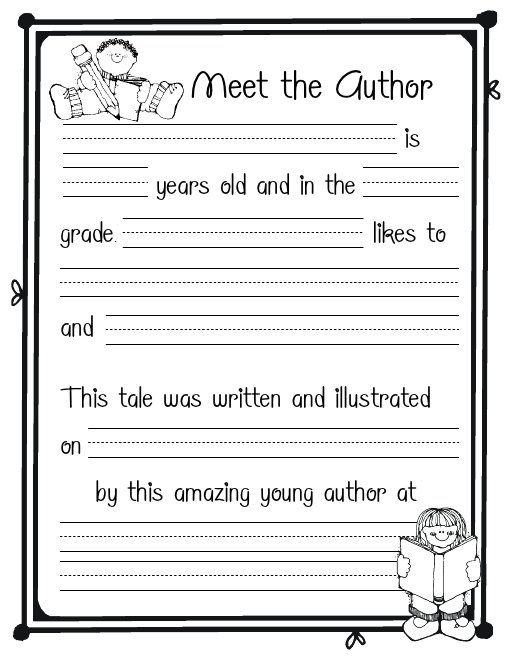 Let's say Exercise 21 (page 87), or Task 14 (p. 33).
Let's say Exercise 21 (page 87), or Task 14 (p. 33).
The text of the actual work is arranged in accordance with the requirements specified by the teacher. It should be remembered that in the English writing tradition, the names of the days of the week and months are capitalized.
If you are self-taught, follow the standard guidelines for paperwork. No need to invent your own ways of capturing information. Methods worked out for centuries have proven their effectiveness. Newly invented solutions will surely let you down at the most crucial moment.
The Importance of Homework
If you don't know how to spell "homework" in English, your work on a foreign language has just begun. Therefore, regularity and constancy is your best friend, and self-fulfillment of language exercises is the key to quick and noticeable success.
Are you taking a course? Do your homework consistently and completely. Only in this way will you maintain the set pace of classes, do a good job with testing, and without delay reach the intended level of speech proficiency.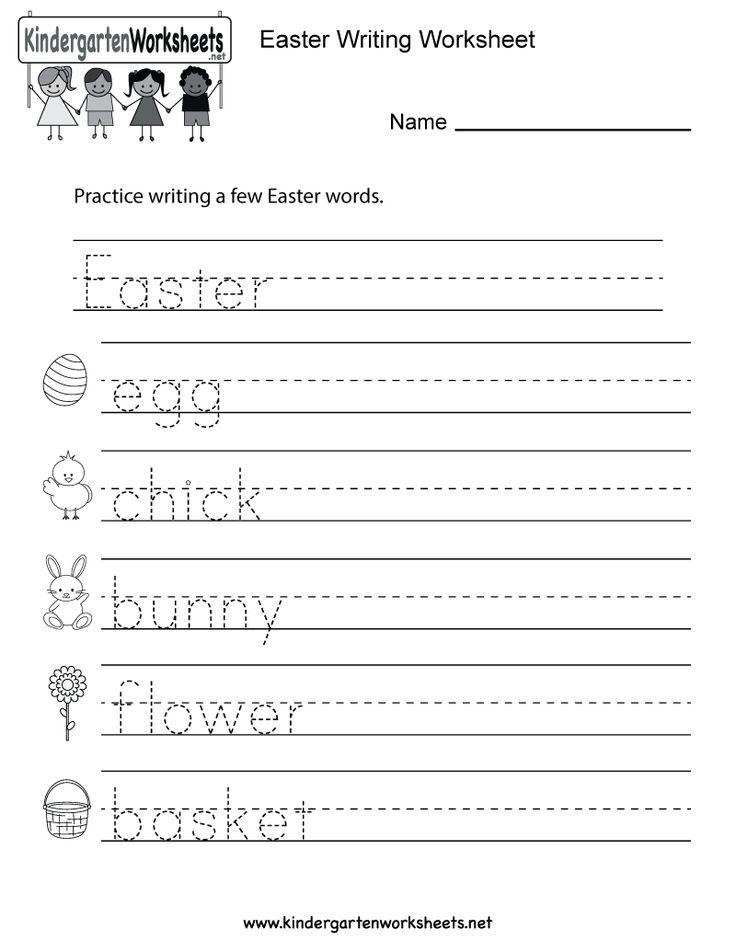
Do you teach on your own? (Are you teaching on your own?) This means that you have the opportunity to devote maximum time to difficult questions. Work through the difficulties several times on your own and with the help of a mentor, without moving on to a new topic until you have fully mastered the educational material.
It makes a lot of sense to study on your own using the manuals for secondary school, with the obligatory completion of written assignments and exercises. Students are asked randomly. You better do it all!
Remember: English homework is the most important tool for your learning. Direct communication with native speakers, watching films and radio programs only improves the knowledge gained in the process of self-study.
Some aspects of online learning
In modern conditions, a computer connected to the Internet is able to replace the university classroom. However, the choice of a training program must be approached with all possible caution and responsibility.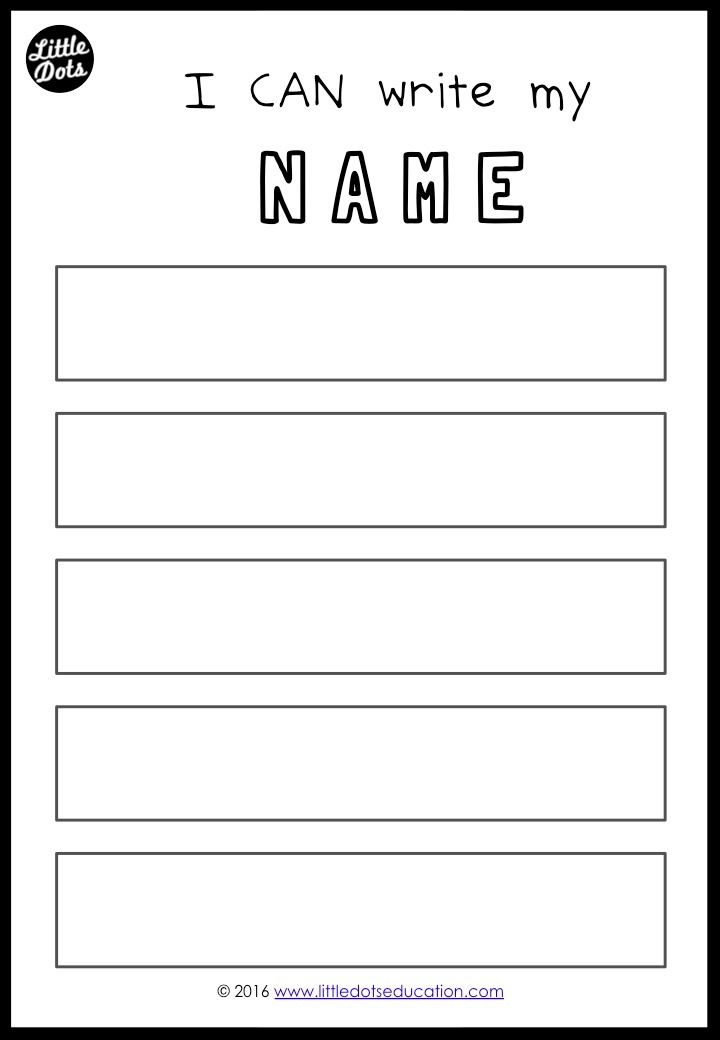
Resources that promise to develop confident conversational skills after two or three sessions deceive the user. It is impossible to call communication the alternation of monologues, composed of a dozen or two words.
It is difficult to consider full-fledged education, conducted according to a shamelessly curtailed program with complete disregard for grammar. In this way, you can only master the pidgin language - a simplified means of primitive communication at the level of "my yours do not understand."
Authoritative English courses provide quality knowledge, but require serious systematic work from the student. Here you will be told how to write homework in English, they will teach you how to correctly form a phrase, understand what you read, and listen to various dialects of British speech.
In conclusion
Skyeng is the recognized leader in distance learning in English. Here you will find everything you need for the effective development of foreign speech.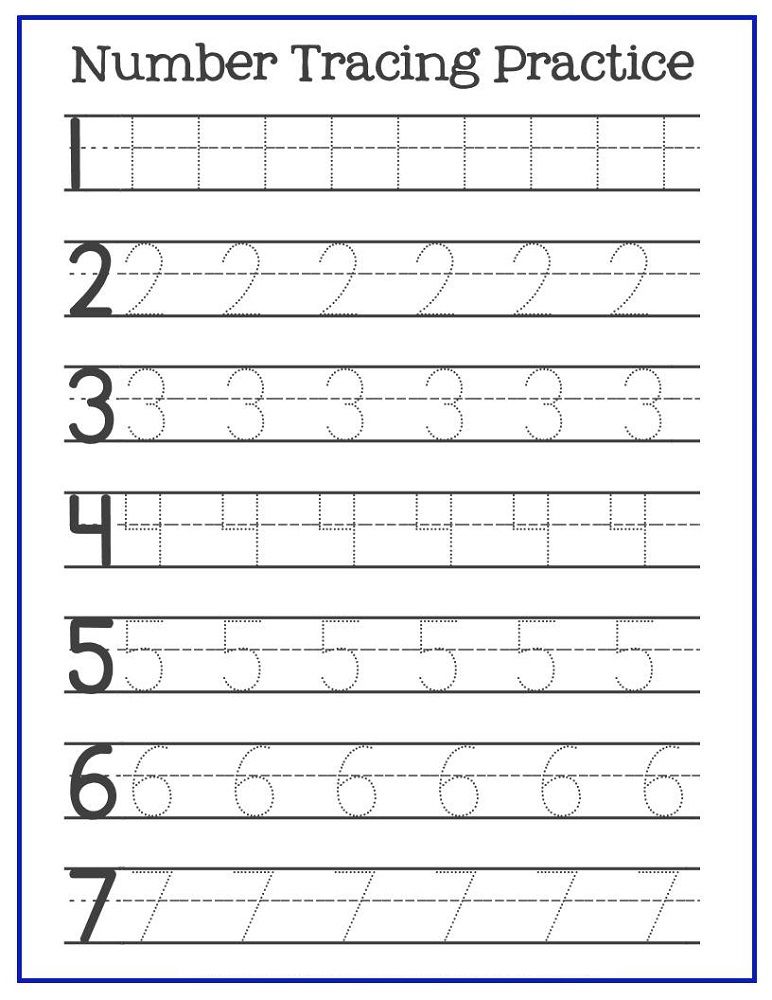
Preparing for an interview in English: a story about education
My Universities: a required interview question
Suppose you are looking for a job (it happens to everyone from time to time). You select attractive vacancies, compose the best resume in the world, carefully prepare for an interview. And now imagine that all the same needs to be done in English. Difficult? Yes. Maybe? Of course!
The job search process is a whole layer of modern culture, with its own traditions and rituals. You are expected to follow the rules, use certain words and expressions, meet established professional standards.
One of the mandatory questions at the interview is the question about the education received. Every self-respecting HR (HR, Human Resource Manager, HR manager, HR specialist) will definitely ask you:
| What is your educational background? | Tell us about your education. |
| Tell me about your educational experience. | |
| or | or |
| Could you please tell us a few words about your education. | Could you briefly describe your education? |
Education should, of course, be included in your professional resume. However, at the interview you will be asked about this again - perhaps by asking you to present the original diplomas and certificates received. So that such a request does not take you by surprise, grab all the necessary “crusts” for the interview in a separate, neat business folder.
When asking a question like this, your interviewer not only expects to hear the name of the university, college or school you graduated from, but also wants to get more detailed information about you:
- whether you participated in the social life of the class or group
- which extracurricular activities did you attend
- did you have an internship, where exactly and what exactly did it consist of
- have you participated in conferences and seminars
- were you a member of any student associations
This will be an excellent confirmation of several positive things at once:
- your determination and ambitions (ambitions)
- your leadership qualities (leadership)
- your interpersonal skills, communication skills
- striving to improve your skills in your chosen activity
- your ability to multitask
And most importantly, the HR specialist is trying to understand how the education you received corresponds to what you will have to do in the proposed position.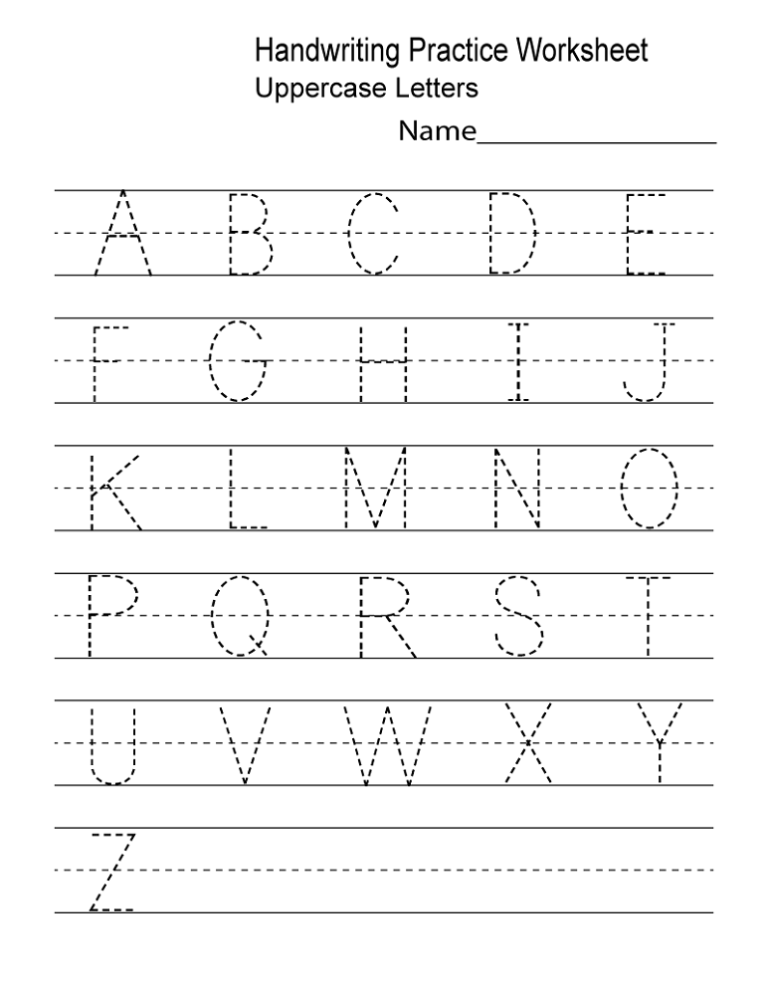
If you have nothing to brag about in terms of education or the education you received does not fit the job profile, you should try to convince the interviewer that you are ready to learn new things - many companies offer training at the expense of the company.
For a story about education, use the following speech constructions:
I graduated from
for example:
I graduated from the University of Toronto (or Toronto University) with B.A. in Physics. — I graduated from the University of Toronto with a bachelor's degree in physics.
I completed a
e.g.:
I completed a B.A. in Physics at Toronto University. — I received a bachelor's degree in physics from the University of Toronto.
I hold/have/was awarded/obtained/got a
ex: I obtained a B. A. in Physics from the University of Toronto. — I received a bachelor's degree in physics from the University of Toronto.
A. in Physics from the University of Toronto. — I received a bachelor's degree in physics from the University of Toronto.
Graduates
Types of educational institutions
| college
| college, college |
| art college | college of arts |
| boarding school
| boarding school, boarding school (closed educational institution) |
| college | institute (educational institution in the USSR and post-Soviet countries) |
| pre-school, nursery school, daycare, kindergarten (except USA) | kindergarten (from 3 to 5 years old) |
| primary (elementary) education | primary (elementary) education (first years of education, in England and the USA - from about 5 to 11 years old) |
| primary school | elementary school |
| private language school | private language school |
| private school or independent school | private school |
| public school | public free school (USA), privileged private school (England) |
| school school | school |
| secondary school | secondary school |
| single-sex school | separate education school |
| state school | public free school (England) |
|
| Pedagogical College |
| technical college | technical school |
| university | university |
| vocational college
| vocational school |
Graduation Ceremony
British, US and Canadian academic degrees and major abbreviations
Associate Level - Associate of Science - Graduate Diploma (and related degree)
A.
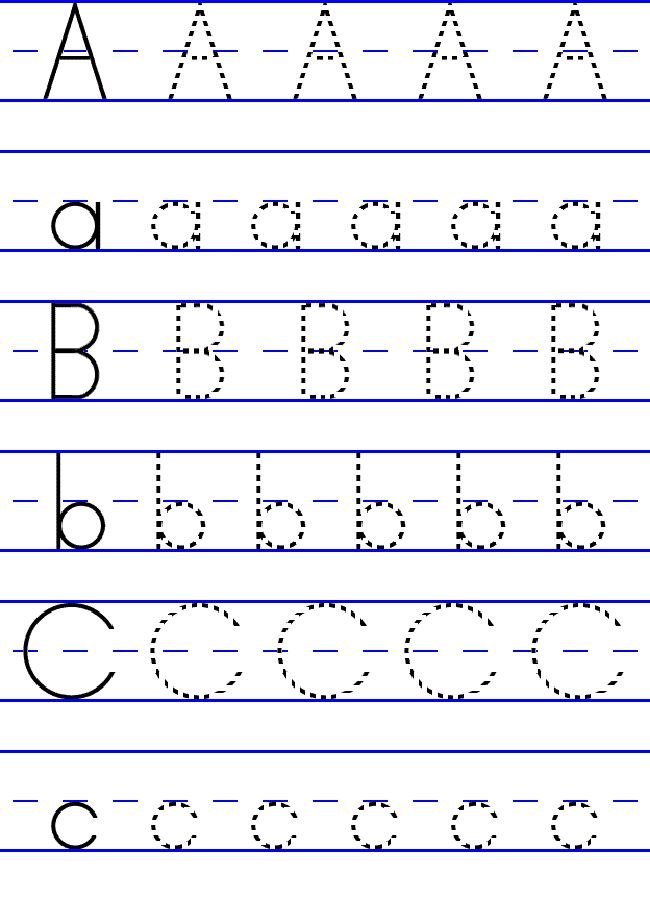 A. - Associate of Arts - in the field of humanities (chemistry, economics, pedagogy, music, physical education, etc.)
A. - Associate of Arts - in the field of humanities (chemistry, economics, pedagogy, music, physical education, etc.) A.A.S. — Associate of Applied Science — in applied sciences
A.A.T. - Associate in Applied Technologies - in Applied Technologies
Bachelor - Bachelor (Graduate of 3-4 year college)
A.B. or B.A. – Bachelor of Arts – Bachelor of Arts (Chemistry, Economics, Pedagogy, Physical Education, etc.)
B.A.B.A. — B.A. of/in Business Administration, B.B.A. — Bachelor of Business Administration, B.S.B.A. — B.S. in Business Administration - Bachelor of Business Administration
B.A.Com. — B.A. in Communication - Bachelor of Communications
B.A.E. — B.A. in Education, Bachelor of Art Education, Bachelor of Aerospace Engineering
B.Ag — Bachelor of Agriculture — Bachelor of Agriculture
B.Arch. - Bachelor of Architecture - Bachelor of Architecture
B.C.E. – Bachelor of Civil Engineering – Bachelor of Civil Engineering
B.Ch.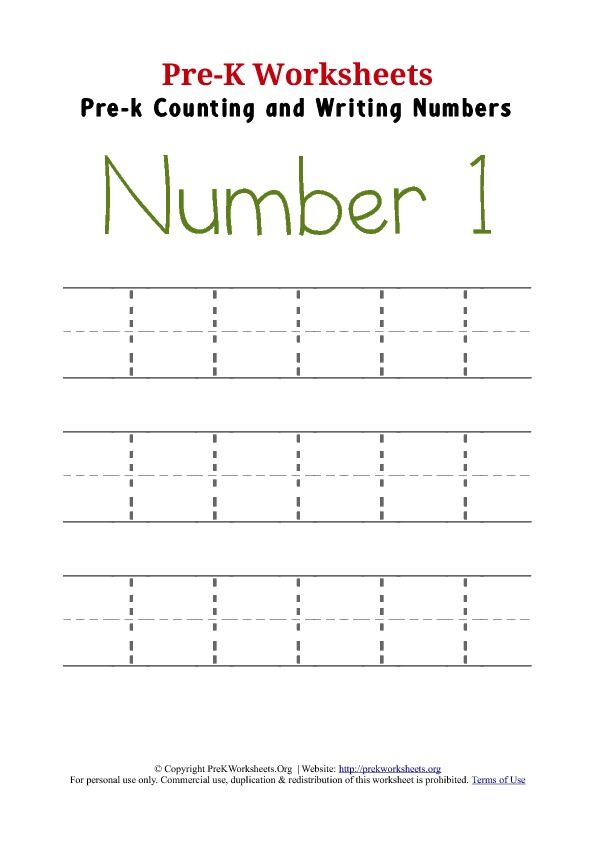 E. - Bachelor of Chemical Engineering - Bachelor of Chemical Engineering
E. - Bachelor of Chemical Engineering - Bachelor of Chemical Engineering
B.D. — Bachelor of Divinity, Th.B. - Bachelor of Theology - Bachelor of Theology (Theology)
B.E. — Bachelor of Education, Bachelor of Engineering — Bachelor of Engineering
B.E.E. — Bachelor of Electrical Engineering — Bachelor of Electrical Engineering
B.F.A. – Bachelor of Fine Arts – Bachelor of Arts (Music, Painting, etc.)
B.In.Dsn. — Bachelor of Industrial Design — Bachelor of Industrial Design
B.J. — Bachelor of Journalism — Bachelor of Journalism
B.L.A. - Bachelor of Liberal Arts - Bachelor of General Education
B.M.Ed. — Bachelor of Music Education — Bachelor of Music Education
B. Pharm. — Bachelor of Pharmacy — Bachelor of Pharmacy
B.S. or S.B. - Bachelor of Science - Bachelor of Science
B.S.A.E. — B.S. in Aerospace Engineering - Bachelor of Aerospace and Rocket Engineering
B.S.C.S. — B.S. in Computer Science - Bachelor of Computer Science
B.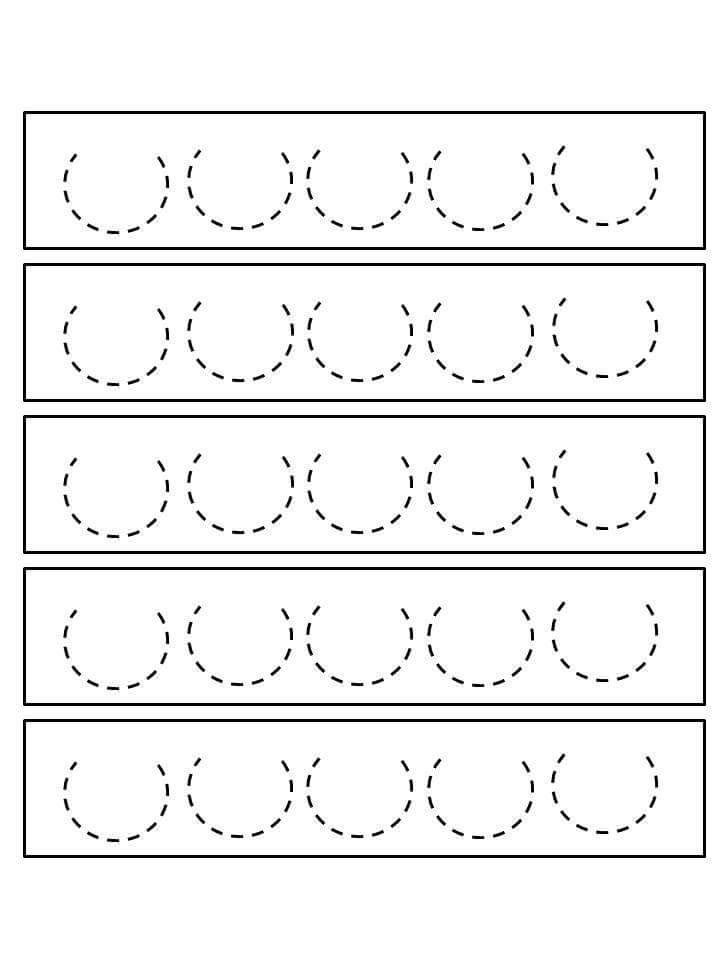 S.Chem. — B.S. in Chemistry - Bachelor of Chemistry
S.Chem. — B.S. in Chemistry - Bachelor of Chemistry
B.S.E. — B.S. in Engineering - Bachelor of Engineering
B.S.Ed. — B.S. in Education - Bachelor of Education
B.S.M.E. — B.S. in Mechanical Engineering - Bachelor of Mechanical Engineering
B.S.Micr. — B.S. in Microbiology - Bachelor of Microbiology
B.S.S.W. — B.S. in Social Work — Bachelor of Social Care
Ph.B. - Bachelor of Philosophy - Bachelor of Philosophy
- Another meaning of the word bachelor is "bachelor".
A.M. or M.A. - Master of Arts - Master of Arts (chemistry, economics, pedagogy, physical education, etc.) Master - Master (Master's student, postgraduate student)
M.Acct. – Master of Accounting – Master of Accounting
M.Aqua. – Master of Aquaculture
M.B.A. — Master of Business Administration — Master of Business Administration
M.C.D. – Master of Communication Disorders – Master of Communication Disorders
M.C.S. — Master of Computer Science, M.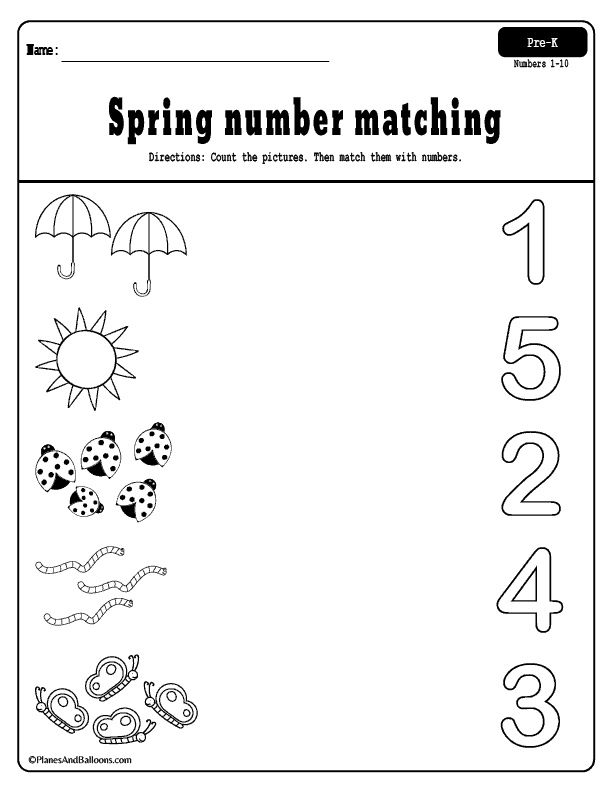 S.C.S. — M.S. in Computer Science - Master of Computer Science
S.C.S. — M.S. in Computer Science - Master of Computer Science
M.Div. — Master of Divinity, Th.M. – Master of Theology – Master of Theology (Theology)
M.E. – Master of Engineering – Master of Engineering
M.Ed. – Master of Education – Master of Pedagogy
M.Fstry. – Master of Forestry
M.L. Arch. – Master of Landscape Architecture – Master of Landscape Architecture
M.L.I.S. — Master of Library & Information Studies — Master of Library and Information Sciences
M.M. or M.Mus. — Master of Music — Master of Music
M.P.S. — Master of Political Science — Master of Political Science
M.S. – Master of Science – Master of Science
M.S.C.J. — M.S. in Criminal Justice - Master of Criminal Justice
M.S.Chem. — M.S. in Chemistry - Master of Chemistry
M.S.F.S. — M.S. in Forensic Science - Master of Forensic Science
M.S.M.Sci. — M.S. in Marine Science - Master of Oceanology
M.S.Met. — M.S. in Metallurgical Engineering
M.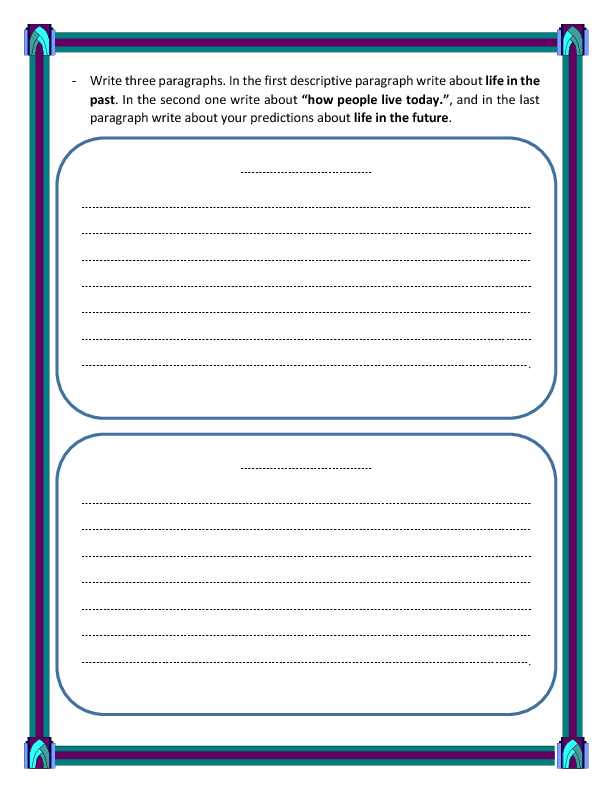 Sw.E - Master of Software Engineering
Sw.E - Master of Software Engineering
M.S.W. – Master of Social Work – Master in Social Assistance
Doctorate – Doctor (Degree)
Au.D. — Doctor of Audiology — Doctor in Audiology (audiology)
Art.D. or D.A. - Doctor of Arts - Doctor of Natural Sciences
D.B.A. — Doctor of Business Administration — Doctor of Business Administration
D.D. - Doctor of Divinity, Th.D., Doctor of Theology - Doctor of Divinity (Theology)
D.Ed. – Doctor of Education – Doctor of Pedagogy
D.L.S. - Doctor of Library Science - Doctor of Library Science
D.M.A. — Doctor of Musical Arts — Doctor of Musical Arts
D.P.A. – Doctor of Public Administration – Doctor of Public Administration
D.P.H. – Doctor of Public Health
D.Sc., S.D or Sc.D. - Doctor of Science - Honorary Doctor of Engineering
D.S.W. - Doctor of Social Welfare, Doctor of Social Work - Doctor of Social Care
D.V.M - Doctor of Veterinary Medicine - Doctor of Veterinary Medicine
Ed.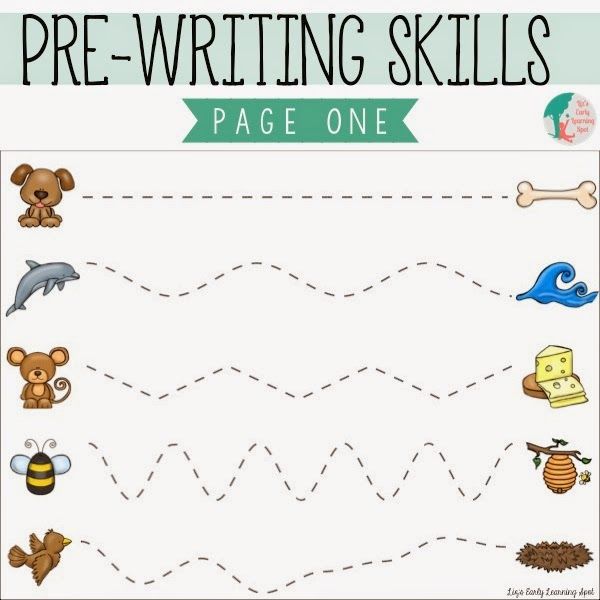 D. – Doctor of Education – Doctor of Pedagogy
D. – Doctor of Education – Doctor of Pedagogy
J.D. — Doctor of Jurisprudence, Doctor of Laws — Doctor of Jurisprudence
L.H.D. - Doctor of Humane Letters - Honorary Doctor of Humane Letters
LL.D. - Doctor of Laws - Doctor of Jurisprudence
Mus.D. or D.M. - Doctor of Music - Doctor of Music
O.D. — Doctor of Optometry — Doctor of Optometry
Ph.D. - Doctor of Philosophy - Doctor of Philosophy
S.Sc.D. — Doctor of Social Science
Common abbreviations for medical degrees
B. N. — Bachelor of Nursing, B.S.N. — B.S. in Nursing - Bachelor of Nursing
M.N. – Master of Nursing
M.N.A. – Master of Nurse Anesthesia – Master of Anesthesiology
D.D.S. – Doctor of Dental Surgery
D.M.D. — Doctor of Dental Medicine, Doctor of Medical Dentistry — Doctor of Dentistry
D.O. – Doctor of Osteopathic Medicine
D.P.T. - Doctor of Physical Therapy - Doctor of Physical Therapy
D.S.N. Doctor of Science in Nursing
D.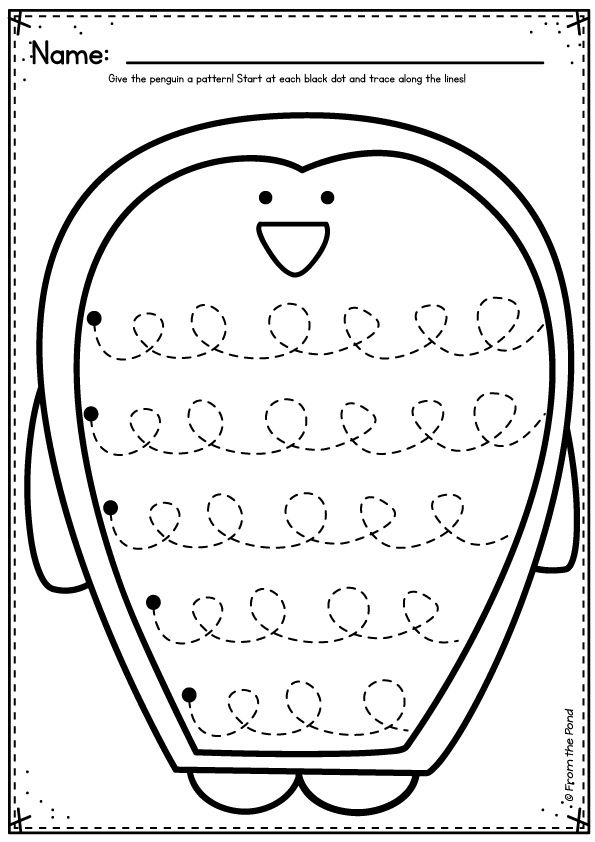 Sc.PT Doctor of Science in Physical Therapy
Sc.PT Doctor of Science in Physical Therapy
M.D. - Doctor of Medicine - Doctor of Medicine
O.D. — Doctor of Optometry — Doctor in Optometry
Pharm.D. — Doctor of Pharmacy — Doctor of Pharmacy
- The abbreviation of the degree is indicated on the business card after the name and surname of the person.
- Specialist degree is issued after 5 years of study and corresponds to a bachelor's or master's degree, depending on the number of study hours in the major.
- The degree of Candidate of Science (Kandidat nauk) generally corresponds to the degree of Master (M.A.) or Doctor of Philosophy (Ph.D.).
- The academic degree of Doctor of Science (Doktor nauk) corresponds to the degree of Doctor of Philosophy (Ph.D.).
- Doctor of Science, as well as Doctor of Letters / Literature (honorary doctorate of sciences in engineering and the humanities, respectively) - the highest academic degree. it is awarded for a significant contribution to science (authors of numerous publications, professors).
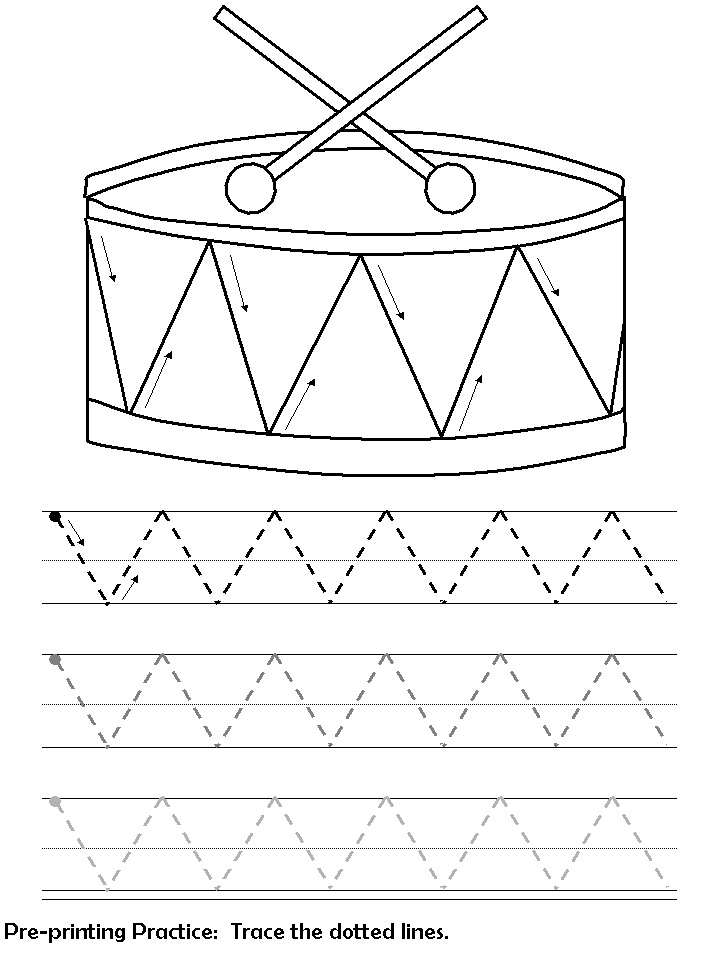
Certificate of Education (USA)
Occupations and Roles in Education:
| A-student, outstanding student | excellent student |
| academic | professor or researcher of an educational institution |
| assistant professor | assistant professor |
| dean | dean |
| freshman | freshman student |
| graduate (student) | postgraduate student, graduate student |
| graduate assistant | PhD student or master in assistant practice |
| head teacher | senior teacher (at school - head teacher) |
| headmaster | director of an educational institution |
| instructor | instructor, teacher, lecturer, associate professor |
| lab assistant | laboratory assistant |
| lecturer | lecturer |
| masters student | undergraduate |
| monitor | headman (groups) |
| PhD student | graduate student |
| postgraduate | postgraduate student, graduate student, graduate student |
| principal | director of a college or school, rector of a higher educational institution |
| pupil, schoolboy, schoolgirl | student, student |
| sophomore | sophomore |
| student (1 st year, 2 nd year…) | student (1st year, 2nd year…) |
| teacher | teacher, lecturer |
| undergraduate | undergraduate student (before bachelor's degree) |
You can read more about the correspondence of academic degrees in different countries in the corresponding Wikipedia article.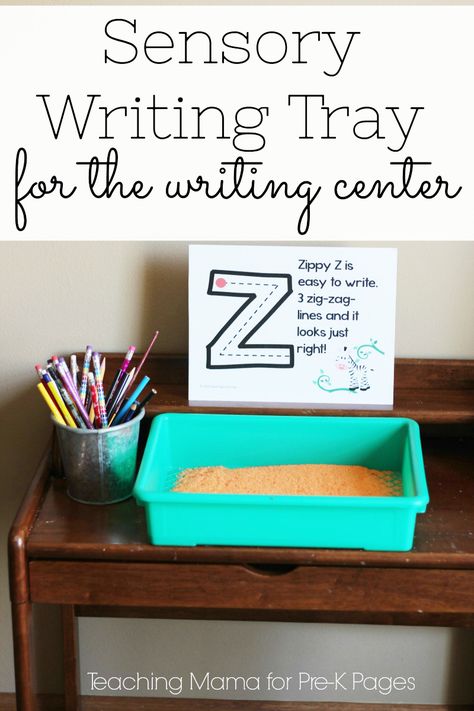
A-student - excellent student
The following words and expressions will be useful to you in the story of your education:
| admission | admission, admission (to an educational institution) |
| attend classes | attend classes, study |
| attendance | visit |
| audience | auditorium (students) |
| auditorium | auditorium (room) |
| cafeteria
| canteen |
| certificate | certificate, a document confirming qualification in a certain field of knowledge |
| cheat | cheat (cheat, use cribs) |
| class | lesson, classes |
| co-educational | co-educational institutions for boys and girls |
| colloquium | colloquium, a form of study involving oral discussion of the topics studied |
| correspondence | distance learning |
| course | course |
| coursework | term paper |
| curriculum | curriculum (list of disciplines in a particular specialty, compulsory or optional) |
| dean's office | deanery |
| degree | academic degree |
| department | department, department |
| diploma | diploma |
| diploma with hono(u)rs, with distinction, | diploma with honors |
| dissertation, thesis | dissertation, scientific work |
| distance learning, remote learning | remote, distance learning (via the Internet or by mail) |
| elective courses, electives | optional curriculum courses (elective courses) |
| essay or paper | essay/work |
| exam / examination | exam |
| exam results | exam results |
| face-to-face classes | In-person teaching (as opposed to distance learning or distance learning) where the student is required to be in person in class |
| faculty | 1) faculty 2) teaching staff of the faculty (BrE) or the whole university (AmE) |
| fail | fail, fail (exam) |
| finals | final exams, state exams |
| grade | 1) class; 2) mark, score (AmE) |
| graduate | graduate |
| graduation | graduation, graduation |
| graduation thesis | thesis |
| graduation thesis topic | thesis topic |
| graduation ceremony | Graduation Ceremony, Graduation Ceremony |
| group / class | study group |
| higher education | higher education (usually at a college or university) |
| higher education / higher learning | higher education |
| intensive course | intensive course |
| laboratory course | laboratory course |
| lecture | lecture |
| lodgings / dormitory | hostel |
| major | shaping object |
| mark | estimate |
| minor | minor, non-major subject (second in importance after major, but more priority than other subjects) |
| notes | abstract |
| practical classes, practical studies | practical exercises |
| qualification | qualification awarded at the end of a course of study |
| required courses | compulsory courses of the curriculum |
| retake | 1) (noun) retake 2) (verb) retake exam |
| secondary education | secondary education (second stage of schooling, from about 12 years old until graduation) |
| semester / term | academic semester |
| seminar
| seminar, a form of classes that involves the presentation of students' own scientific papers |
| student loan | study loan |
| student union | student union |
| subject | item |
| term / semester | semester |
| test | test, control |
| thesis, thesis research | thesis, dissertation |
| thesis defense | diploma / scientific work defense |
| thesis mentor / adviser | supervisor |
| to carry out / conduct research | conduct research |
| to defend a graduation thesis | defend the thesis |
| to enrol(l) | sign up for a training course |
| to enter (a college, university) | apply (to college, university) |
| to fail an exam | fail exam |
| to fall behind with your studies | fall behind the general mass of students. |
| to graduate (from a college, university) | successfully complete (college, university) |
| to keep up with your studies | keep up with the general population of students, study at a normal pace |
| to learn | study |
| to pass an exam | pass exam |
| to play truant | skip classes |
| to revise (BrE), study, review (AmE) | review what you have learned (before the exam) |
| to study | study |
| to take a year out | take a one-year break from studies, take academic leave for a year |
| to take an exam, to sit an exam | take exam |
| tuition fees | tuition fee |
| job placement | internship, industrial training |
To cheat at exams
Useful phrases
I finished school in 2000.
After leaving school in 2000, I entered the University of Toronto. — After graduating from high school in 2000, I entered the University of Toronto.
I am a student of Toronto University. — I'm a student at the University of Toronto.
I am in my first/second/third year. I'm in my first/second/third year.
I am a first-year/second-year student. I'm in my first/second year.
My major is / I major in physics. — My specialty is physics.
I graduated from the University in 2000. — I graduated from the university in 2000.
I graduated with hono(u)rs. - I graduated with honors (with a "red diploma").
I was trained as a physicist. — I was educated as a physicist.
I majored in physics. — My specialty was physics.
I minored in mathematics. — Mathematics was a secondary subject of my specialization.
I took discrete mathematics in 2000 and passed the course examination with a grade of "A". - In 2000, I took a discrete mathematics course, passing the final exam with the highest score.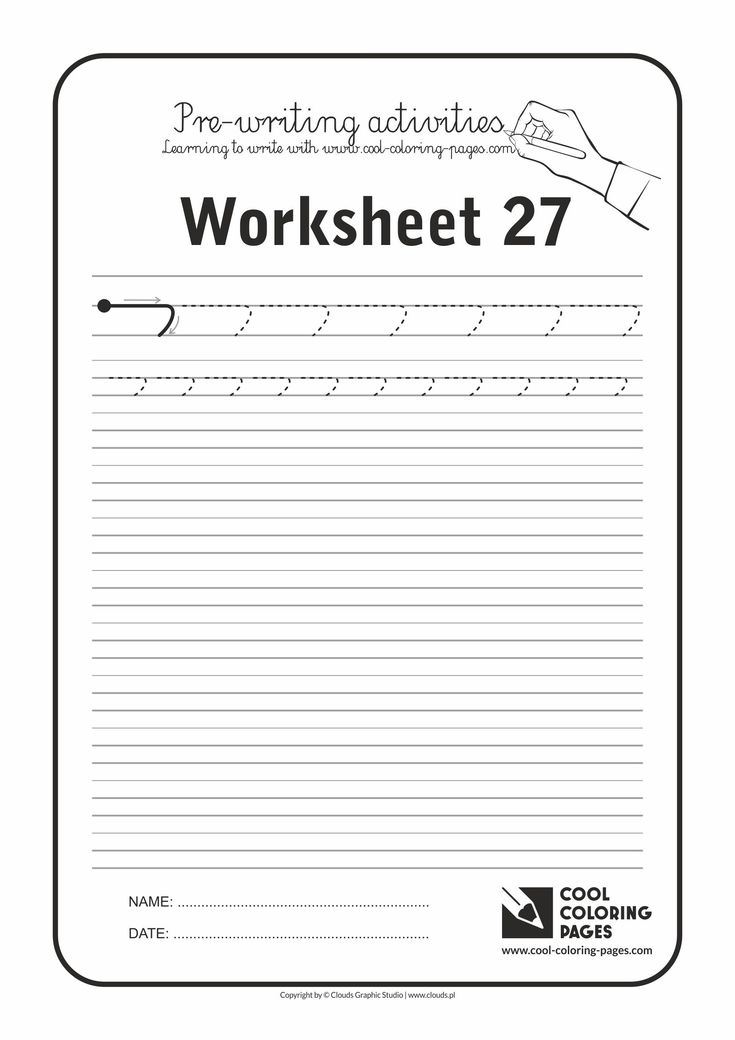
At the University I studied…
My internship involved… My internship involved…
conducting research on…, researching on…
developing…
performing a wide range of tasks on…
training on…
working with…
Tell me about your education
At the interview: a dialogue about your education
| Interviewer: According to your CV, you studied at the University of Birmingham. | Interviewer: According to your resume, you studied at the University of Birmingham. |
| Can you tell me a little about what you studied? | Can you tell us what you studied? |
| Candidate: No problem. I studied there for 4 years and obtained a BA in English Language. | Candidate: Of course. I studied there for 4 years and received a bachelor's degree in English. |
| I enjoyed it very much and my high final grades demonstrate that. | I really liked to study - and my high final grades are the best proof of that. |
| Then, in order to improve my job prospects, I did a master's program in Business Administration. | Further, in order to improve my professional prospects, I received an MBA. |
| As part of my master's program, I did a work placement in the human resources department of the AAA Company during the winter term, which lasted about 3 months. | As part of my master's degree program, I spent about three months internship in the human resources department of AAA (during the winter semester). |
| It was a very rewarding experience. | This experience was very useful for me. |
| All the courses in the master's were practical, like, for example, courses on employment law and business organization. | All master's courses were practical, such as courses on labor law and enterprise organization. |
| My thesis was on employment law in the retail sector. | The topic of my scientific work was labor legislation in the field of retail sales. |
| I enjoyed everything about the master's and I got a very high final grade. | I enjoyed my master's degree very much and got a very high final score. |
| After that, I decided that I didn't want to do a PHD, I wanted to start my career and use what I'd learned in the real world. | After that, I decided that I was not interested in graduate studies: I wanted to start a career in order to apply what I learned in real life. |
| Interviewer: Excellent, and what about at school? | Interviewer: Great, but how were things at school? |
| Candidate: I studied at Skipton Secondary School in Yorkshire. I passed all my A-levels with high grades. In addition, I did a lot of extracurricular activities like being secretary of the drama club — both enjoyable and rewarding for me. |

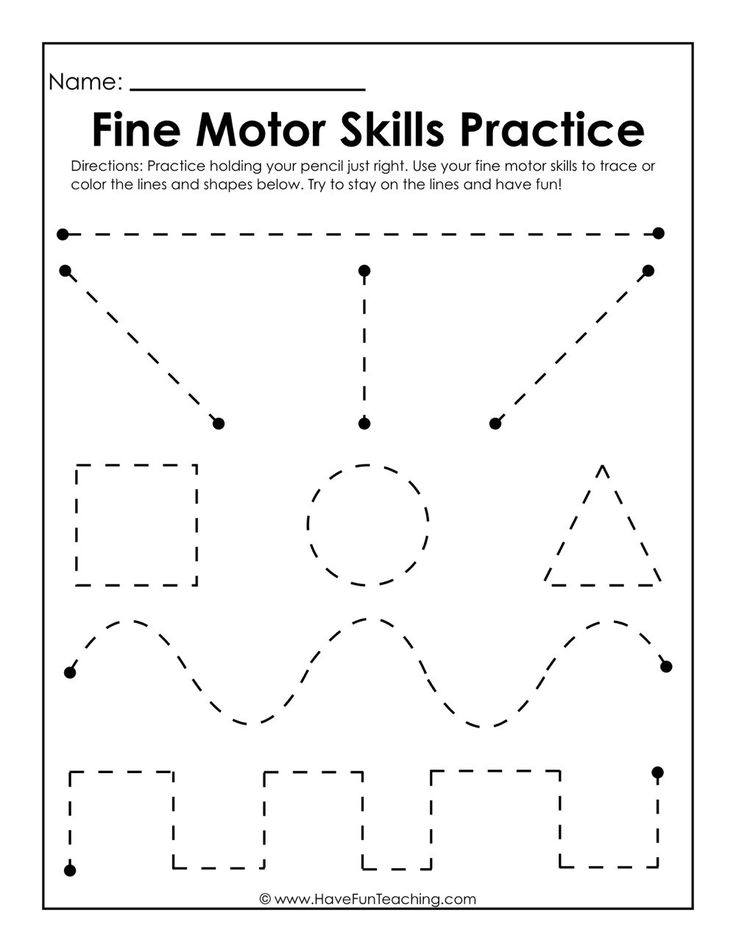
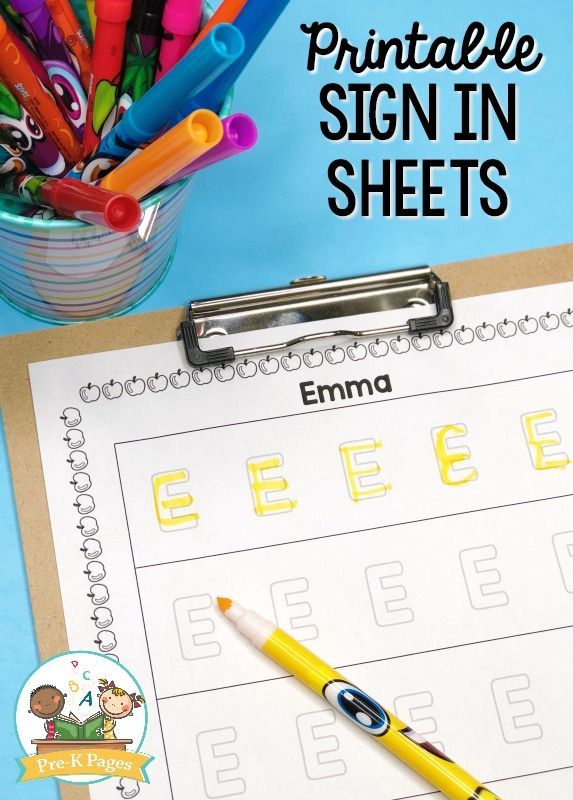 )
) 
